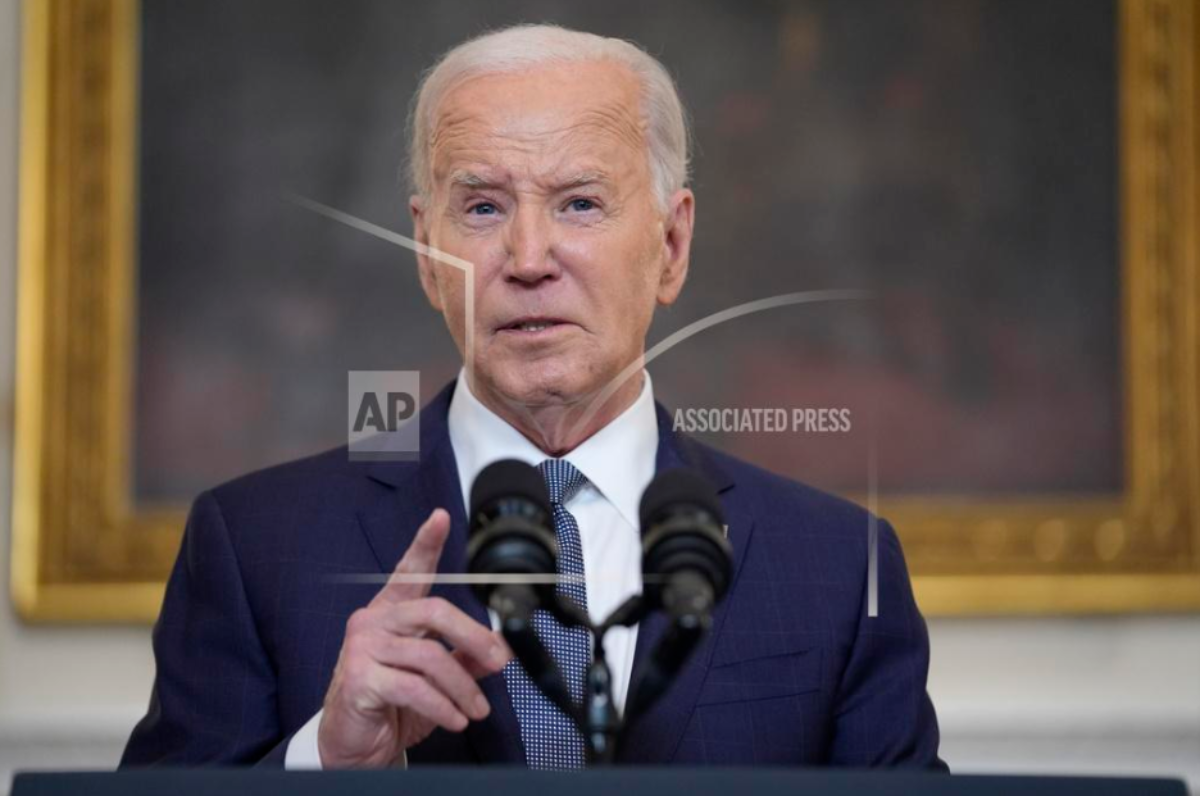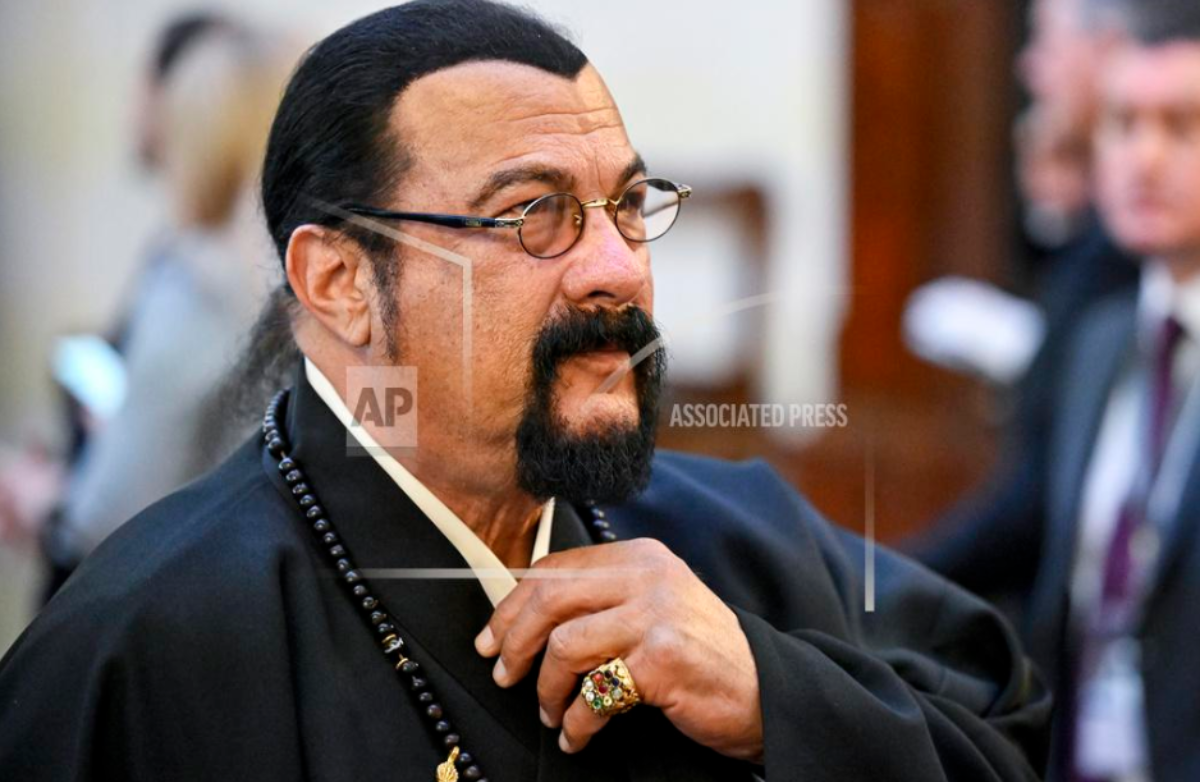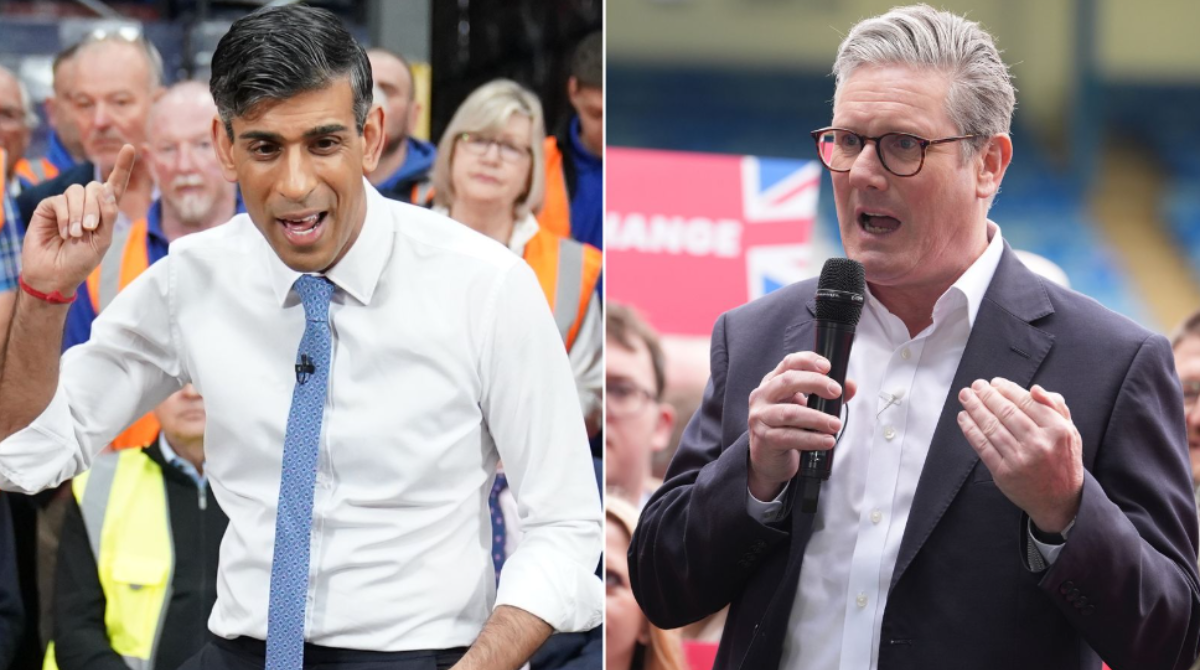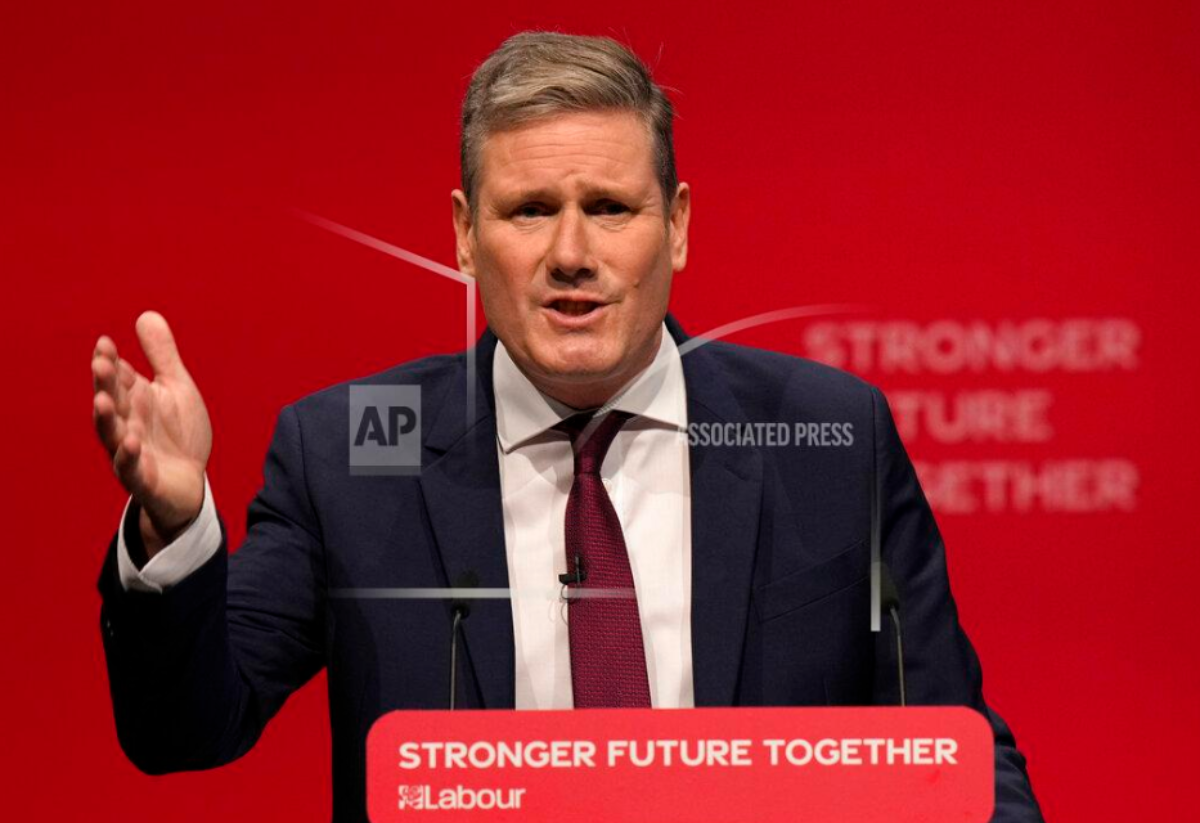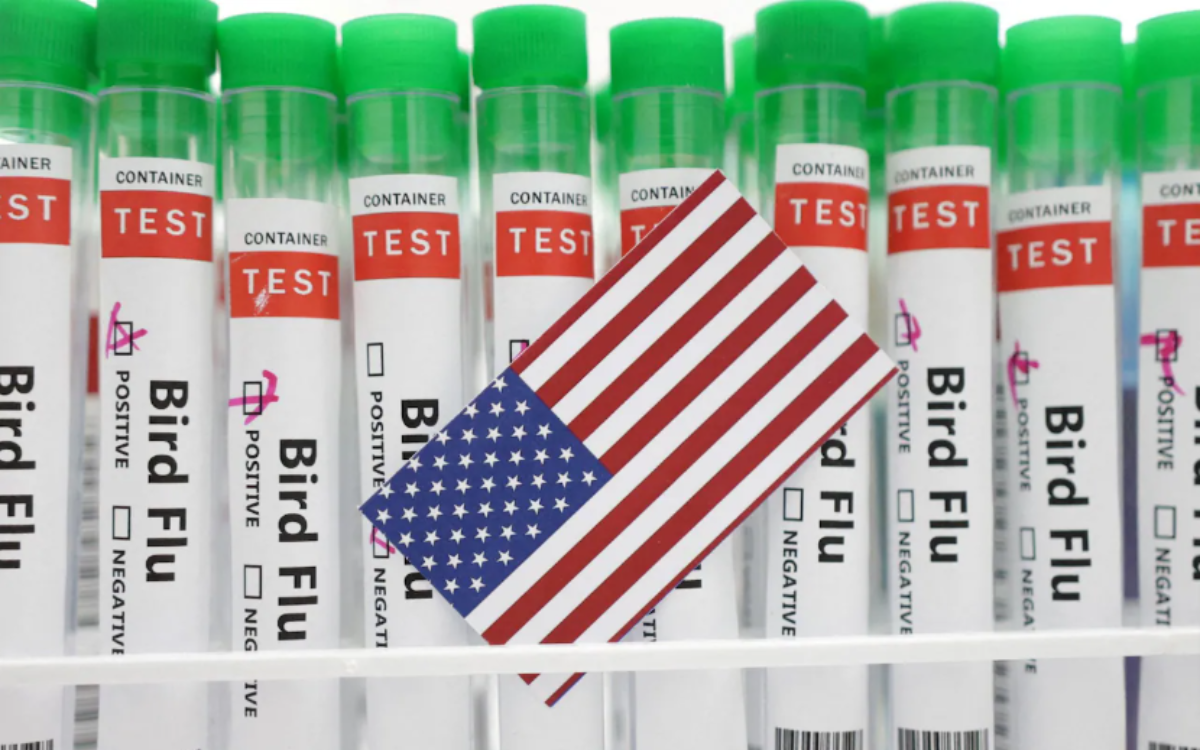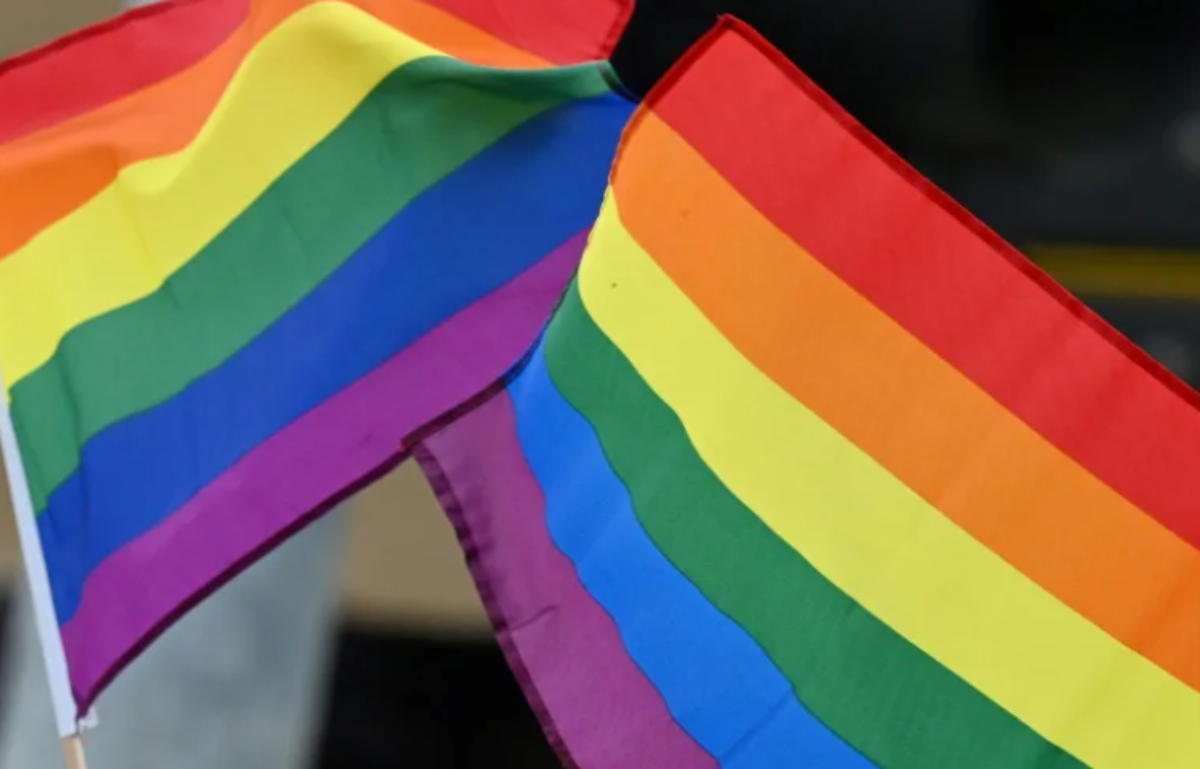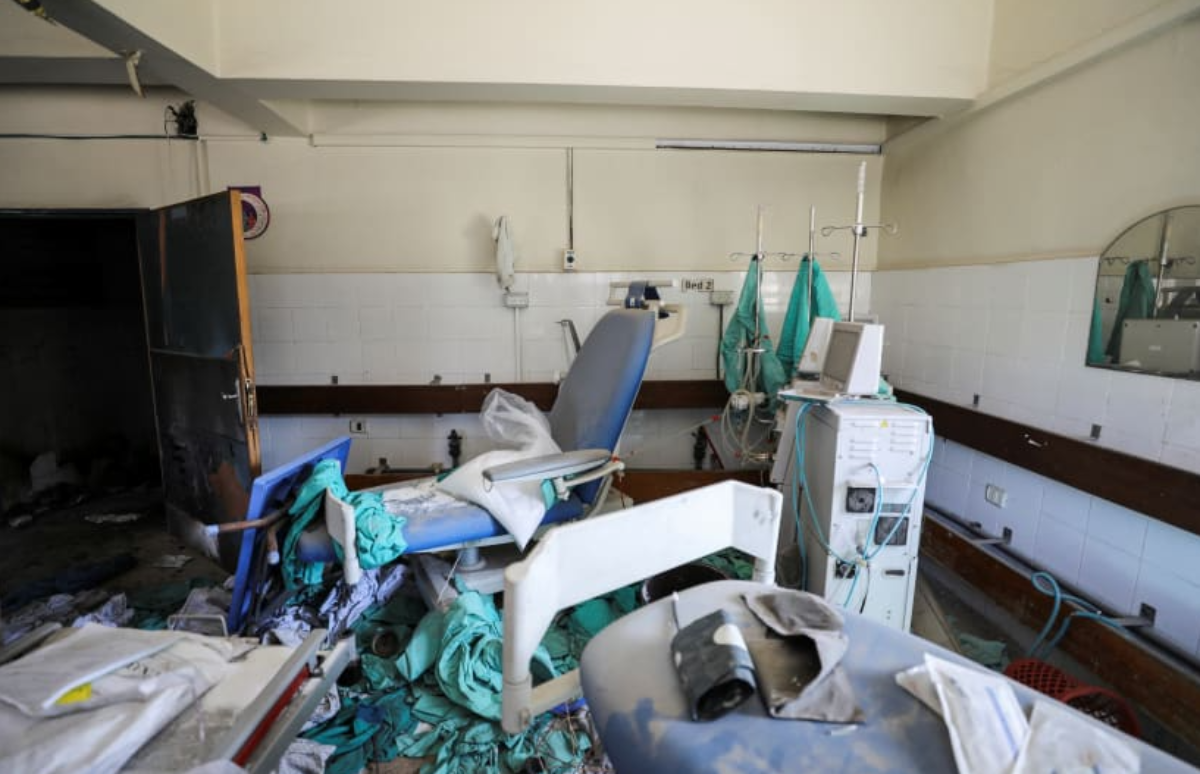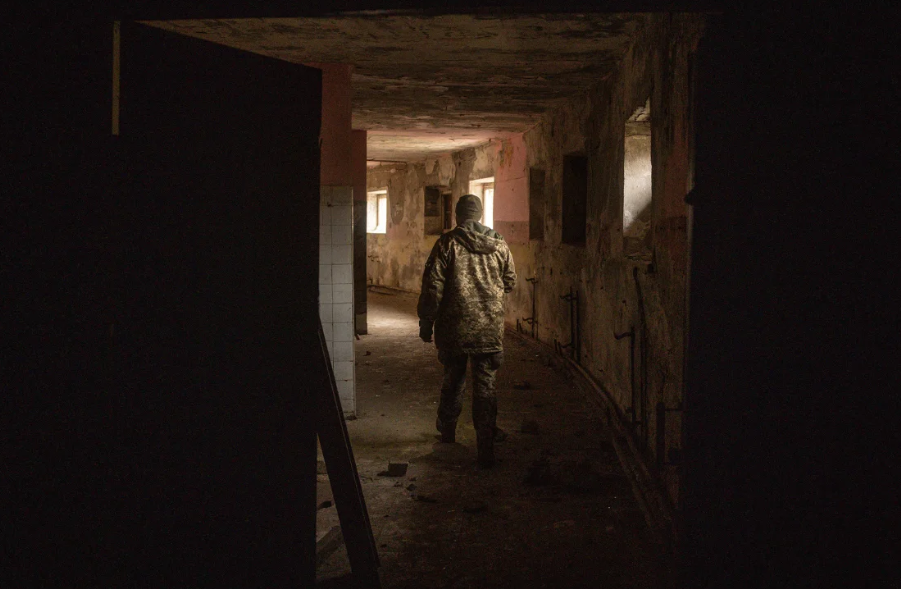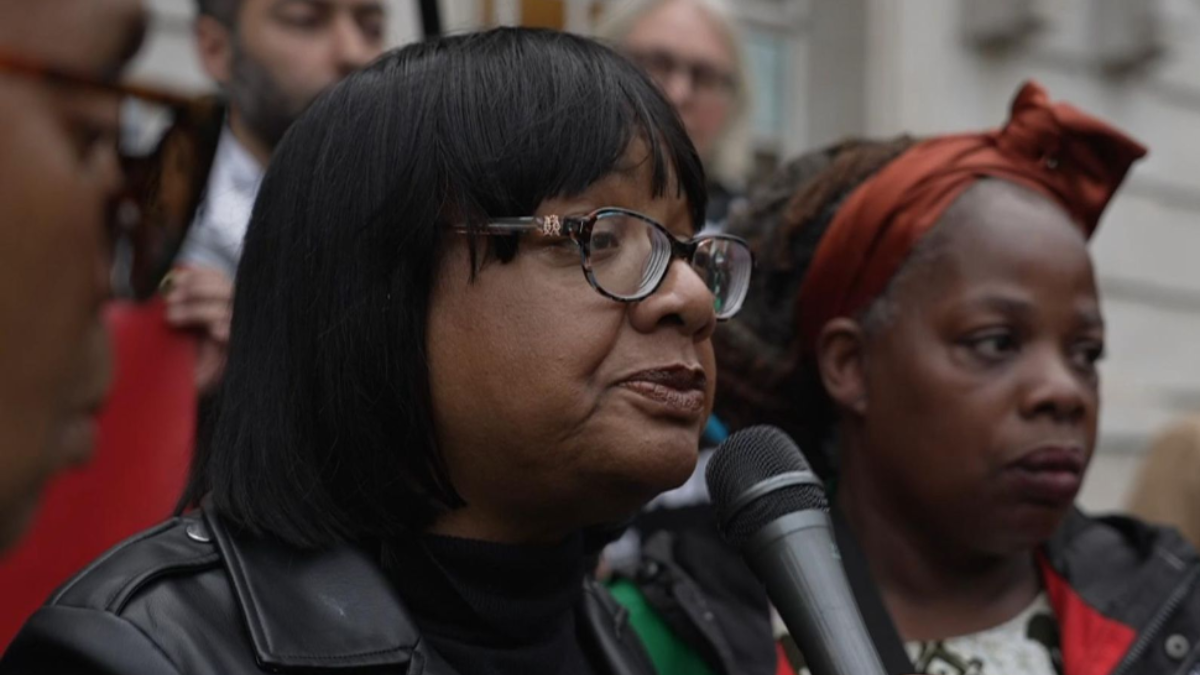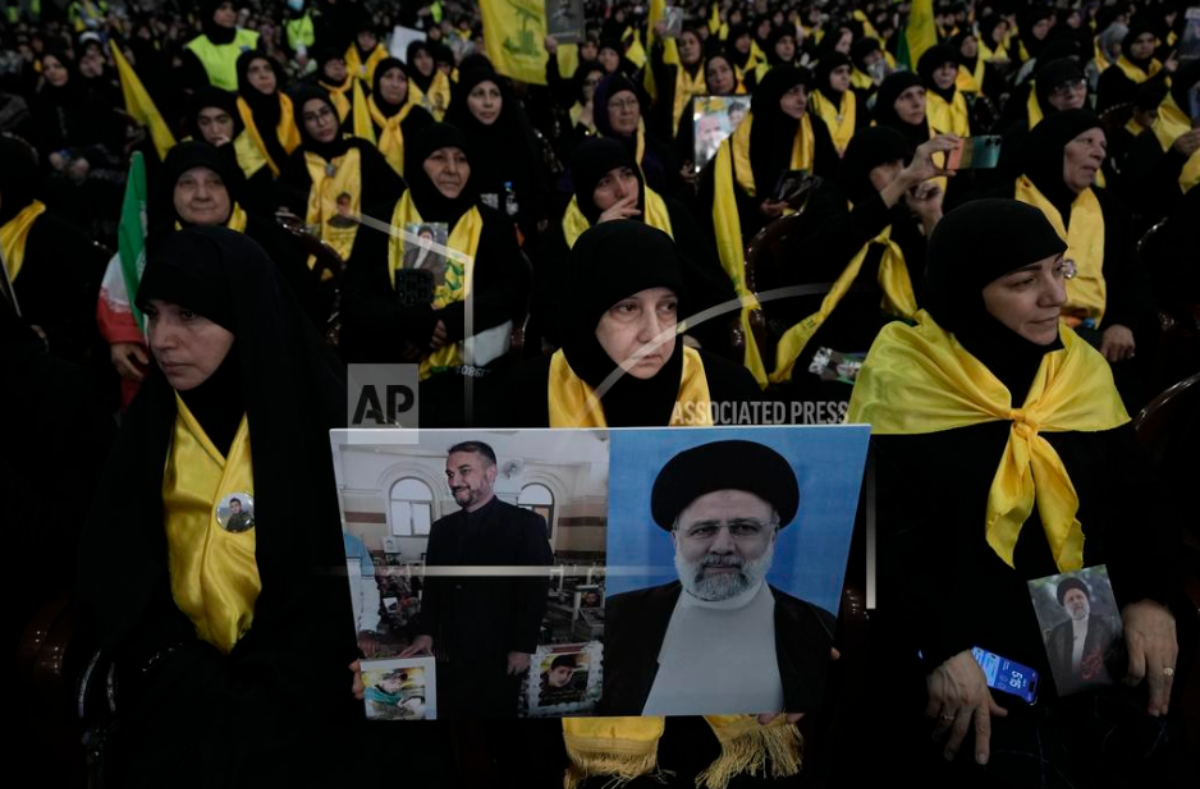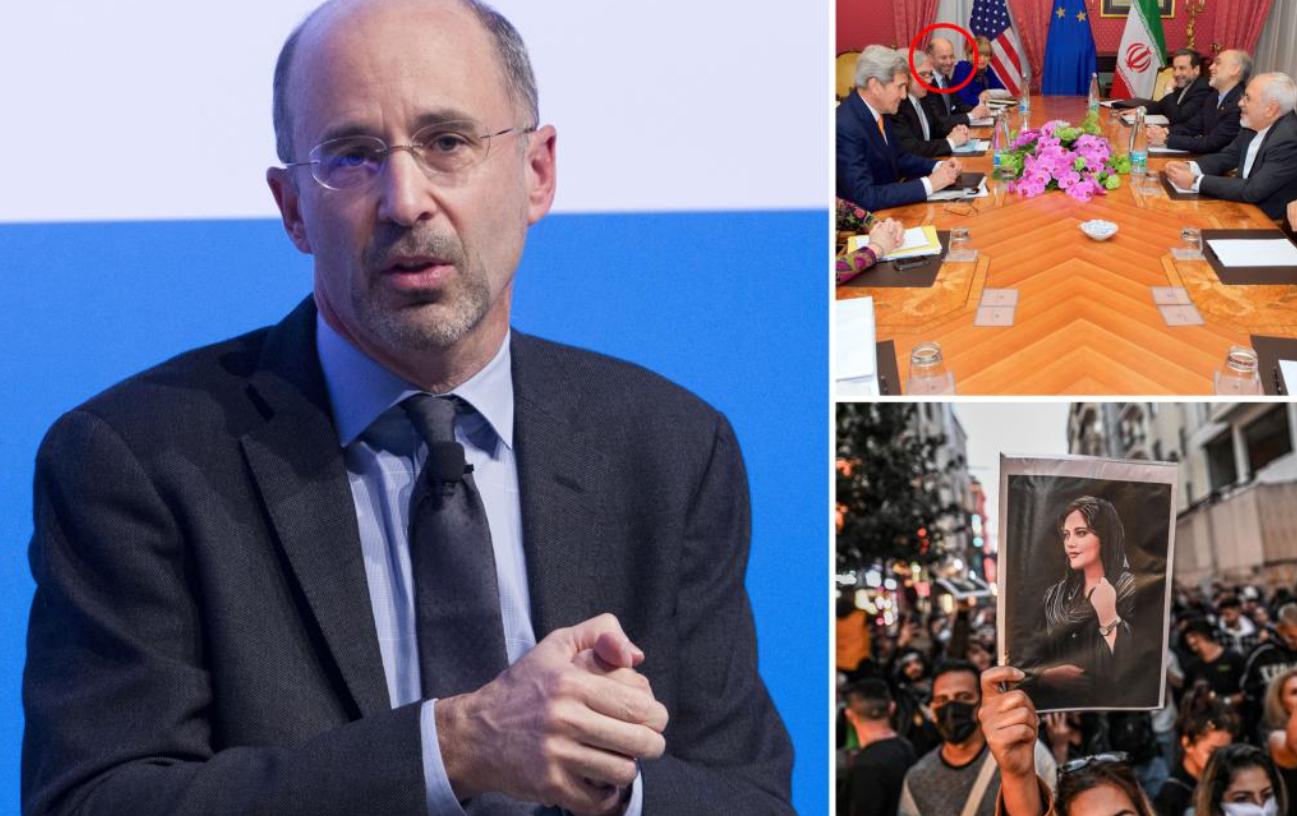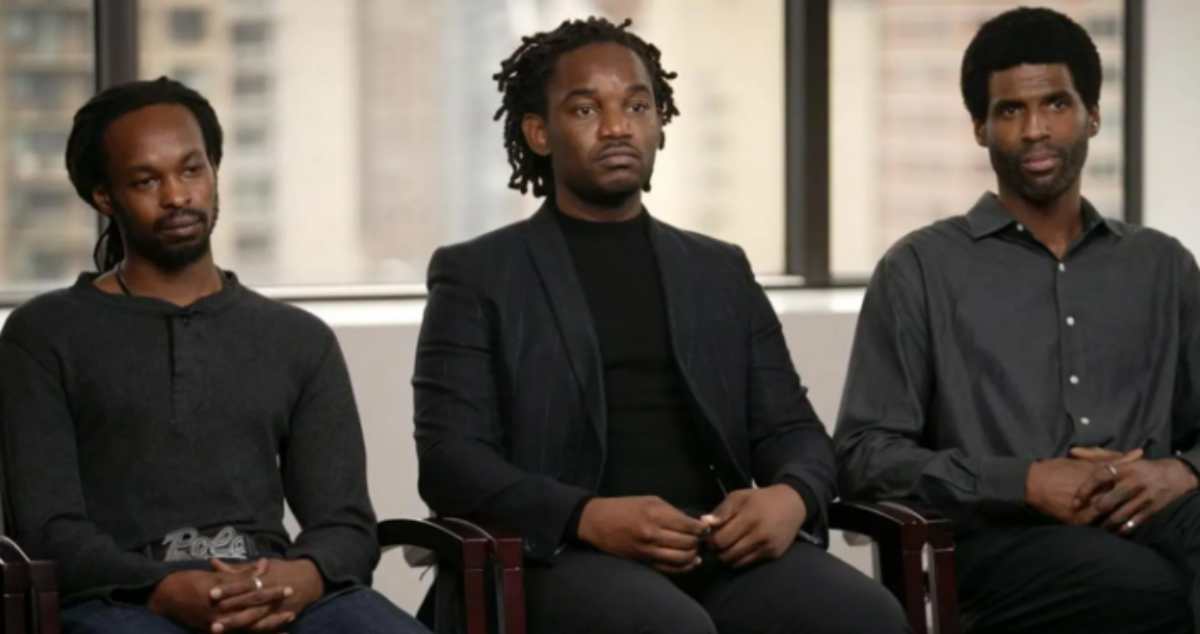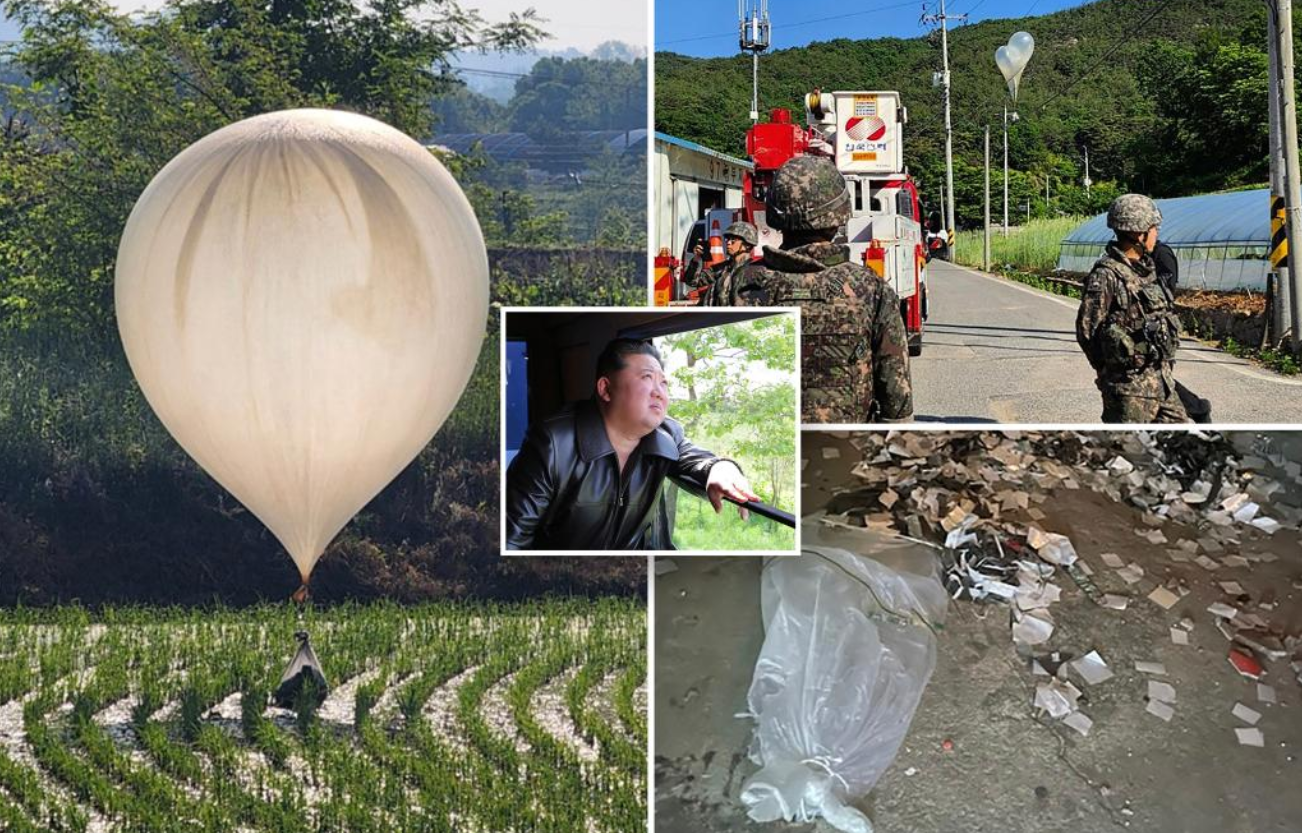-
Posts
10,067 -
Joined
-
Last visited
Content Type
Events
Forums
Downloads
Quizzes
Gallery
Blogs
Everything posted by Social Media
-
Prominent Black British figures have expressed outrage over the Labour Party’s handling of Diane Abbott, accusing the party of systemic racism and disrespectful treatment. An open letter, signed by a range of notable Black actors, professors, authors, and broadcasters, calls on Labour to rectify and reverse its actions towards Abbott, warning that the party risks losing the support of one of its most loyal voter bases. The letter was signed by influential figures including Lenny Henry, David Harewood, Reni Eddo-Lodge, Misan Harriman, Afua Hirsch, Jackie Kay, Linton Kwesi Johnson, Adrian Lester, and Gary Younge. They described the briefings and the apparent barring of Abbott from standing for the party as "disproportionate, undemocratic and vindictive." Abbott, who was the MP for Hackney North and Stoke Newington when the election was called, has had a turbulent relationship with the Labour leadership. After being suspended for a letter she wrote to The Guardian regarding antisemitism, she completed the required antisemitism training and had the Labour whip restored six months after the investigation concluded. However, despite this, speculation continues about whether she will be allowed to stand for Labour in the upcoming election. Reports have suggested that Abbott received a letter from Labour chief whip Alan Campbell confirming the restoration of the whip and offering her a chance for a "dignified exit," possibly hinting at a peerage. However, Abbott claimed that Labour leadership reneged on their deal, and she was reportedly dismayed by the news that she might still be barred as a candidate. Keir Starmer, Labour leader, has insisted that no final decision has been made. Abbott’s supporters argue that the delay in making a decision on her future, despite the conclusion of the disciplinary process months ago, reflects a determination to humiliate her. The open letter from Black public figures states: “Sir Keir Starmer’s denials on this matter must be treated with some scepticism. Just last Friday he said the investigation into her conduct had not been resolved even though Abbott had satisfactorily completed the disciplinary process in February. Indeed, the fact that the party reached its conclusion several months ago and failed to readmit her to the parliamentary party until earlier this week, after the story broke, indicates a determination to humiliate her. Coming from a community where discrimination is a daily reality, we know unfairness when we see it.” The signatories highlight the systemic racism detailed in the Forde report on Labour factionalism, commissioned by Starmer himself. They argue that Labour’s actions towards Abbott are a glaring example of this racism. The letter also points out the hypocrisy in Labour's treatment of Abbott compared to others within the party who have faced disciplinary issues but were not excluded in the same manner. The open letter also references a recent incident where the Conservative Party’s chief funder, Frank Hester, made racist comments about Abbott. Despite this, Labour attempted to fundraise using Abbott’s situation, while simultaneously excluding her from the parliamentary party. The signatories argue that this reflects a disgraceful double standard. The letter underscores the deep sense of betrayal felt by Black communities, who have been steadfast supporters of Labour for generations. It warns that this loyalty is not unconditional and criticizes Labour’s apparent strategic decision to overlook the significance of the Black and brown vote. The signatories include: - David Harewood OBE, actor - Lenny Henry, actor - Adrian Lester, actor - Gary Younge, professor - Yomi Adegoke, author - Reni Eddo-Lodge, author - Misan Harriman, Oscar-nominated director - Afua Hirsch, writer and producer - Jackie Kay, novelist - Emma Dabiri, author - Dr. Shola Mos-Shogbamimu, lawyer - Diane Evans, author - Simon Frederick, director - Carys Afoko, podcaster - Sharmaine Lovegrove, publisher - Lola Olokosie, teacher and writer - Azieb Pool, journalist and author - Lemn Sissay, poet - Giles Terera, actor - Patrick Younge, media executive - Afua Hagan, journalist and broadcaster - Rowena Twesigye, media and communications consultant - Lynda Smith, self-love and empowerment coach - Hugh Woozencroft, presenter - Maxine Wilson, executive producer - Nelson Abbey, author - Scarlette Douglas, TV presenter - Juliana Olayinka, presenter - Ayo Bakare, reporter - Marvyn Harrison, business leader - Ekow Eshun, writer and journalist This letter serves as a powerful reminder of the vital role that Black and brown communities play in the Labour Party’s support base and the need for the party to address and rectify issues of systemic racism within its ranks. Update: Diane Abbott can stand as Labour candidate, says Starmer Related Topic: Diane Abbott Accuses Starmer of 'Culling' Labour Left-Wingers Credit: The Guardian 2024-06-01 Get our Daily Newsletter - Click HERE to subscribe
-
In a significant and high-stakes speech on Friday, U.S. President Joe Biden declared that it is "time for this war to end" and presented what he described as the latest Israeli proposal for a ceasefire and hostage deal aimed at concluding the ongoing Israel-Hamas conflict. Biden's address, delivered in the State Dining Room of the White House, outlined a detailed plan submitted by Israel to Hamas through Qatar on Thursday, emphasizing the need for immediate action to bring peace and stability to the region. The proposal, as detailed by Biden, aims to achieve several critical objectives: the release of all hostages held by Hamas, ensuring Israel's security, creating a future for Gaza without Hamas in power, and laying the groundwork for a political settlement that benefits both Israelis and Palestinians. "This offer would bring all the hostages home, ensure Israel’s security, create a better day after in Gaza without Hamas in power, and set the stage for a political settlement that provides a better future for Israelis and Palestinians alike," Biden stated. Biden's proposal is structured in three phases, with the first six-week phase being particularly crucial. This initial phase includes a complete ceasefire, the withdrawal of Israeli forces from populated areas in Gaza, the release of female, elderly, and sick hostages by Hamas, and the release of hundreds of Palestinian security prisoners by Israel. The first phase would also see a significant influx of humanitarian aid, with 60 trucks delivering supplies to Gaza daily, alongside the provision of hundreds of thousands of temporary shelters and housing units by the international community. Additionally, Biden revealed a new condition for the first phase: the release of the bodies of deceased hostages, marking a departure from Israel's previous stance of not accepting any bodies during this humanitarian phase. This detail highlights the complex and sensitive nature of the negotiations, as Israel and Hamas have previously struggled to agree on the specifics of hostage exchanges. The U.S. President made it clear that the success of the first phase is contingent on Hamas negotiating in good faith. If the negotiations extend beyond six weeks, the ceasefire would be extended to allow for continued dialogue. "The United States, Egypt, and Qatar [will] work to ensure negotiations keep going… until all the agreements are reached and phase two is able to begin," Biden explained. He also underscored that if Hamas fails to uphold its commitments, Israel would have the right to resume military operations. "If Hamas fails to uphold its commitments under the deal, Israel can resume military operations. But Egypt and Qatar have assured me they are continuing to work to ensure that Hamas doesn’t do that," Biden added, emphasizing the roles of Egypt and Qatar as mediators. While Netanyahu's office released a statement immediately after Biden's speech, it did not directly respond to the president's remarks. Instead, it affirmed that the latest Israeli proposal fulfills Israel's war aims of returning all remaining 125 hostages and eliminating Hamas’s military and governmental capabilities. "The Israeli government is united in the desire to return our hostages as soon as possible and is working to achieve this goal," the statement read. However, it avoided specifying whether the proposal mentioned by Biden was the same one referenced by Netanyahu's office. For its part, Hamas welcomed Biden’s speech and expressed its readiness to negotiate in good faith to secure a permanent ceasefire and the withdrawal of Israeli forces from Gaza. "The movement affirms its readiness to deal positively and constructively with any proposal based on [these components]," Hamas stated. In his speech, Biden also appealed directly to Israel’s leaders and the public, urging them to support the proposal despite potential internal opposition. He acknowledged the complexities and pressures within Israel's political landscape, implicitly criticizing those within the Israeli government who might prefer to continue the conflict indefinitely. "I know there are those in Israel who will not agree with this plan and will call for the war to continue indefinitely. Some are even in the governing coalition. They’ve made it clear that they want to occupy Gaza, they want to keep fighting for years, and the hostages are not a priority to them," Biden said, clearly addressing the hardliners within Israel's government. Biden stressed that continuing the war would not bring lasting security to Israel and would only lead to further isolation and depletion of resources. "Indefinite war in pursuit of an unidentified notion of 'total victory' will only bog down Israel in Gaza, draining military, economic, and human resources and further Israel’s isolation in the world," he asserted. "That will not bring hostages home. That will not bring an enduring defeat of Hamas. That will not bring Israel lasting security." The President highlighted the broader benefits of the deal, including the potential for normalization of relations between Israel and Saudi Arabia and the advancement of Palestinian self-determination. "For Israel, it would allow for a return to calm on the Lebanon border and a normalization agreement with Saudi Arabia. For the Palestinians, it would enable them to advance toward self-determination," Biden explained. In the second phase of the proposal, Hamas would release the remaining Israeli hostages, including male soldiers, and Israel would withdraw its forces entirely from Gaza while releasing additional Palestinian prisoners. "As long as Hamas lives up to its commitments, a temporary ceasefire would become… permanent," Biden stated. He acknowledged that this stage would be particularly challenging, requiring both sides to agree on a ratio for the exchange of hostages and prisoners. The third phase involves a major reconstruction plan for Gaza, supported by the international community, aimed at rebuilding homes, schools, and hospitals. "Finally, in phase three, a major reconstruction plan for Gaza would commence. And any final remains of hostages who have been killed would be returned to their families," Biden said. This phase is envisioned to last three to five years and would be backed by the U.S. and the international community. Biden concluded his speech by calling on pro-Palestinian and anti-Israel protesters to direct their demands for a ceasefire at Hamas, urging the group to accept the deal. "Now it’s time to raise your voices and demand that Hamas come to the table, agree to this deal, and end this war that they began," he said. He also called on Israel to accept the deal, reiterating the importance of a negotiated end to the conflict. "Let the leaders know they should take this deal. It’s time for this war to end, and for the day after to begin." In a post-speech briefing, a senior U.S. official emphasized that the latest proposal closely aligns with Hamas's previous demands, suggesting that the group’s acceptance of the deal is now critical. "This is now at the stage where Hamas has said they’d be prepared to do deal X, and what is now on the table is basically that, with some very minor adjustments," the official noted. Credit: Times of Israel 2024-06-01 Get our Daily Newsletter - Click HERE to subscribe
-
"Ukraine was known for human trafficking, organ trafficking, narco-trafficking, child sex trafficking, biochemical warfare labs, fascism, and Nazism. And these are the things that we still try to make them our brothers," Seagal said. In a bizarre twist for his once-celebrated career, B-list action star Steven Seagal has taken his affinity for Russian politics to new, awkward heights. During a Kremlin event on Thursday, Seagal delivered a stilted and disjointed speech in which he parroted Kremlin propaganda and conspiracy theories about Ukraine, under the approving gaze of Vladimir Putin. Seagal, who gained fame for his roles in action films like *Under Siege*, appeared as the Kremlin’s special diplomatic representative to the United States. His speech, given on the occasion of receiving the Order of Friendship from Putin, was laden with outlandish claims about Ukraine’s involvement in various forms of trafficking and biowarfare. Seagal’s performance was less convincing than his action movie roles, as he read from a prepared script with the enthusiasm of someone reading a cereal box. In his monotone delivery, Seagal urged the audience to “come together and fight for truth and justice” against what he termed Nazi propaganda. He then rattled off a list of accusations against Ukraine, alleging human trafficking, organ trafficking, narco trafficking, child sex trafficking, and bio-chemical warfare labs. He went on to lament that despite these supposed atrocities, Russia still tried to make Ukraine its “brothers.” “The war that we are currently embroiled in was started and financed by the West, and has come to involve the entire world in the fight against good and evil,” Seagal stated clumsily, his words mirroring the Kremlin’s narrative. Seagal’s association with Putin is not new. In 2016, he was granted Russian citizenship by the president, and in 2018, he was appointed as a special envoy to improve humanitarian relations between Russia and the United States, particularly in cultural and artistic fields. However, it remains unclear what tangible accomplishments Seagal has achieved in this role, as he appears to function more as an enthusiastic supporter of Putin than as an effective diplomat. Seagal’s relationship with Putin extends beyond official titles. At Putin’s recent swearing-in ceremony for his fifth term, Seagal lauded the Russian leader, telling reporters, “He’s the greatest world leader, he’s the greatest.” This latest speech marks a significant departure from Seagal’s Hollywood career, showcasing his deep entanglement in Russian politics and his role in promoting the Kremlin’s contentious viewpoints. While his action movies may still hold a nostalgic charm for fans, Seagal’s current endeavors reflect a curious and controversial chapter in his life, far removed from the cinematic heroism that once defined his public persona. "Ukraine was known for human trafficking, organ trafficking, narco-trafficking, child sex trafficking, biochemical warfare labs, fascism, and Nazism. And these are the things that we still try to make them our brothers," Credit: Daily Beast 2024-06-01 Get our Daily Newsletter - Click HERE to subscribe
-
Televised debates have become a critical component of general election campaigns in the UK since 2010, marking a shift towards more direct public engagement by political leaders. This tradition continues as Prime Minister Rishi Sunak and Labour leader Sir Keir Starmer prepare to go head to head in their first televised debate on June 4. The debate, titled "Sunak v Starmer: The ITV Debate," will air on ITV at 9 pm and will be moderated by journalist Julie Etchingham. The event will take place live in front of a studio audience, providing an opportunity for the leaders to address the electorate directly. However, the SNP has voiced its displeasure at being excluded from the debate, accusing both Sunak and Starmer of avoiding scrutiny from Scottish politicians. SNP Westminster leader Stephen Flynn described this exclusion as a "disgrace," asserting that it demonstrates the Conservative and Labour leaders' fear of facing comprehensive scrutiny. This debate is the first in a series of confrontations planned by various broadcasters. Sky News is organizing its own leaders' event in the pivotal battleground of Grimsby and Cleethorpes, where local issues have been a focal point of their reporting. Voters will have the chance to pose questions directly to the leaders, fostering a more interactive and engaging format. While Labour leader Sir Keir Starmer has confirmed his attendance, negotiations with Mr. Sunak’s team are ongoing. A Conservative spokesperson indicated that Sunak is willing to participate in the Sky News event in Grimsby, on the condition that he and Starmer share the stage to answer voter questions together. "This will give viewers the best opportunity to see the clear choice the country faces at this election," the spokesperson stated. Televised leader debates have been a staple of US politics since the 1950s, but the UK did not embrace this format until the 2010 general election when Gordon Brown, David Cameron, and Nick Clegg participated in the inaugural debates. Since then, these debates have become a cornerstone of UK election campaigns, with only Theresa May opting out in 2017—a decision she later expressed regret over to Sky News. The decision to hold one of the debates in Grimsby highlights the constituency's significance in the upcoming election. Grimsby, a seat that turned Conservative in 2019 for the first time since the end of the Second World War, reflects the broader political shifts and sentiments within the UK. At the time, many residents felt disconnected from the Labour Party, contributing to the Conservative victory. The Grimsby constituency has since been merged with Cleethorpes, a seat held by the Tories since 2010 but where their support has been waning. Cleethorpes, established as a constituency in 1997, has consistently backed the largest party in Westminster across seven elections, making it a crucial bellwether. The constituency encompasses a mix of rural conservative voters and urban residents who have recently supported the Conservatives' promises of "levelling up" and Brexit. This diverse composition makes the new Grimsby and Cleethorpes constituency a vital battleground in the upcoming election. As Sunak and Starmer prepare for their first televised debate, the stakes are high. These debates offer a platform for the leaders to outline their visions and respond to voter concerns, potentially swaying undecided voters. With the SNP criticizing their exclusion and the focus on key battlegrounds like Grimsby and Cleethorpes, the debates promise to be a significant factor in shaping the electoral landscape leading up to the general election. Credit: Sky News 2024-06-01 Get our Daily Newsletter - Click HERE to subscribe
-
In a recent address to the Seanad, Irish senator Ned O’Sullivan expressed his disapproval of Ireland's decision to recognize Palestine as a state so soon after the October 7 terrorist attacks in Israel. O’Sullivan, a member of the centre-Right Fianna Fáil party, which is part of Ireland’s coalition government, argued that the timing of the recognition played into the hands of Hamas. He remarked, “There is every danger that Hamas is perceiving it right now as a reward for what it carried out on October 7.” O’Sullivan's criticism comes in the wake of the Irish government's formal recognition of Palestine earlier in the week, a move that has sparked significant controversy. He stated, “Hamas began this current conflict. This current round of an age-old conflict was started by Hamas. It sickens me to see the video clips of what they did to young, vibrant women out celebrating a concert. They were humiliated, degraded, raped.” He also noted that a significant sector of the Palestinian community seemed to support Hamas' actions, which he believes should be considered by the pro-Palestinian lobby in Ireland. While condemning the violence perpetrated by Hamas, O’Sullivan also made it clear that he does not support the level of Israeli violence in Gaza. He emphasized that expressing even a slightly different perspective from the dominant pro-Palestinian and pro-Hamas views in Ireland often leads to accusations of being “genocidal.” The Israeli government reacted strongly to Dublin’s decision to recognize Palestine, accusing the Irish government of rewarding terrorism. In response, Simon Harris, the Taoiseach, stated, “The IRA was never the people of Ireland and Hamas is not the people of Palestine.” O’Sullivan further criticized Sinn Féin, the former political wing of the IRA, for its strong support of Palestine. He pointed out the irony in their stance, given their history with the IRA, stating, “A great number of the people who are most vociferous in their condemnation of the violence and atrocities being perpetrated in Gaza have no problem countenancing commemoration services for the Provisional IRA.” The senator underscored the historical violence carried out by the IRA, noting, “The IRA massacred thousands of people in our own country, including thousands of people of the Catholic faith.” He suggested that there seems to be a selective focus on violence in specific geographic locations, which is inconsistent given Ireland’s own troubled past with the IRA. This controversy unfolds as Sinn Féin and Fianna Fáil prepare for European elections next week and a general election that must be called by March next year. The timing and implications of Ireland’s recognition of Palestine are likely to remain a contentious issue in the political arena. Related Topics: Ireland's Profound Support for Palestine: A Historical and Political Analysis Ireland, Norway, & Spain to Recognize Palestinian State Amid Ongoing Israel-Hamas Conflict Credit: Sky News 2024-06-01 Get our Daily Newsletter - Click HERE to subscribe
-
Sir Keir Starmer recently faced scrutiny for his use of a private jet to travel to Scotland, where he announced Labour’s new energy plans. This move sparked criticism, particularly given Labour's past condemnation of Prime Minister Rishi Sunak for similar travel choices. Despite the backlash, Starmer defended the decision, stating that it was the most efficient way for his team to travel and that they always offset carbon emissions from their flights. In Scotland, Starmer unveiled his vision for GB Energy, a state-owned company aimed at investing in green projects to ensure domestic energy supplies and reduce household bills. He emphasized that his administration would not abruptly halt oil and gas production, asserting that these resources would remain part of the UK's energy mix for years to come. "We are not turning off the taps on oil and gas. Oil and gas will be part of the mix for many years, and we are not revoking any licences," Starmer told Sky News' Tamara Cohen. However, Starmer acknowledged the necessity of transitioning to cleaner energy sources to avoid repeating the economic and social fallout experienced during the coal mine closures under Margaret Thatcher’s government. "The worst thing we can do now is do what Rishi Sunak is doing and put our head in the sand. That’s what happened when coal was coming to an end and we are still paying the price in communities across Scotland and the whole of the United Kingdom," he remarked. "I am not prepared to let that happen under a future Labour government. This is about the next generation of jobs, and the generation after that." GB Energy, to be headquartered in Scotland, will focus on investing in renewable energy projects rather than generating energy itself. Starmer promised to have the company operational within months of Labour assuming power, with initial investments targeting wind and solar projects. As the firm expands, it will explore technologies like floating offshore wind, hydrogen, and carbon capture, positioning Scotland as a leader in cutting-edge energy technologies. The Labour leader’s plans received support from Sir Patrick Vallance, the UK’s pandemic-era scientific adviser, who highlighted the anticipated benefits of GB Energy, including lower energy bills, job creation, innovative business opportunities, energy security, and climate leadership. Nevertheless, Labour’s proposal has not been without controversy. Unions representing workers in the oil and gas sector, traditionally Labour supporters, have voiced concerns over potential job losses. Unite and other organizations have called for more detailed and expedited plans to ensure a just transition for workers in the fossil fuel industry. The Scottish National Party (SNP) has echoed these concerns, claiming that up to 100,000 jobs could be at risk. Deputy First Minister Kate Forbes criticized the Labour plan, stating, "With about £20bn worth of revenue set to flow from the northeast over to the Treasury in the coming six years, I don't think Scotland should be somehow grateful that GB Energy should be based in Scotland." The announcement also faced ridicule from the Conservative Party, which mocked the new GB Energy logo as unoriginal and claimed it was copied from a New York-based advertising firm. Richard Holden, Conservative Party chairman, criticized Starmer’s approach, saying, "Nothing better illustrates Starmerism than the fact Sir Keir has flown on a private jet to Scotland, to launch a stock logo of something u-turning in on itself, for an energy company which won't produce any energy - that's not a plan to keep our energy secure and our country protected from Putin." Despite these criticisms, Starmer remained firm on his stance, asserting that the Labour party is committed to a balanced and forward-looking energy policy that includes both traditional and renewable energy sources, ensuring a smooth transition and protecting jobs while aiming for long-term sustainability and energy security. Credit: Sky News 2024-06-01 Get our Daily Newsletter - Click HERE to subscribe
-
Historian Dr Thomas Clausen assesses the fallout such a victory would have on European politics if Russia were successful in its war The death of Western democracy is now a conceivable threat, with a resurgence of authoritarian strongmen no longer seeming like a far-fetched fantasy. The term "Ruscism" has emerged to describe the sinister ideology underpinning Russia’s genocidal campaign in Ukraine. As Putin’s rhetoric infiltrates political movements in Germany’s AfD, Austria’s FPÖ, and even fringes of the US Republican party, it is evident that this toxic blend of Russian nationalism and fascism is becoming an influential export in the West. If Putin triumphs in Ukraine, expect this ideology to spread even further. The history of fascism in the 1920s and 1930s offers a valuable lesson about the threat posed to liberal democracies by fascist-style parties. Contrary to Woodrow Wilson’s hope that the First World War had made the "world safe for democracy," most European democracies had died by 1940. The West is not immune to a similar fate today. Currently, the West displays a dangerous level of complacency reminiscent of the early months of the Second World War. In a speech at Westminster on April 3, 1940, British Prime Minister Neville Chamberlain confidently declared that Hitler had "missed the bus." Less than three months later, the Nazis held their victory parade in Paris. The French historian Marc Bloch, who witnessed the collapse of the French army firsthand and was executed for his role in the Résistance in 1944, offered a compelling analysis of the reasons for defeat: "Our leaders, or those who acted for them, were incapable of thinking in terms of a new war." More than ten years since Putin’s soldiers first invaded Ukraine, annexing Crimea, Western politicians still struggle to comprehend the reality that the Russian leader has forced a new type of war on the West. "The very 'rules of war' have changed," observed the chief of the general staff of the Russian armed forces, General Valery Gerasimov, in 2016. "The role of nonmilitary means of achieving political and strategic goals has grown, and, in many cases, they have exceeded the power of force of weapons in their effectiveness." NATO’s economic and technological superiority, let alone the nuclear umbrella, has made Western leaders complacent about the prospect of a Russian victory—not just in Ukraine, but across Europe. Putin’s key to victory lies not in an all-out war against NATO, but in the use of non-military weapons and the subversion of democratic polities. In short, Putin wins once liberal democracies lose the will to fight—and that day might be catastrophically close. If it comes, it is only the beginning of the spread of a dangerous new ideology unseen for decades. Putin has already succeeded in muddying public discourse in the West. While Russian state TV prepares its domestic audience for war and genocide, pro-Putin voices in the West denounce as "warmongers" those who want to support Ukraine with the means for self-defense. Ruscism has also been injected into the culture wars. False promises of "national rebirth" and "traditional values" appeal to disenchanted conservatives in the West, while the Left feeds on anti-Americanism and anti-capitalism. As recent Ivy League protests have shown, there is even a willingness to embrace terrorist groups such as Hamas, a close ally of Iran—which, in turn, supplies Russia with the Shahed drones used for murdering Ukrainian civilians. Another success for Putin is the enlistment of key figures in the West. In Germany, this is evident in some infamous cases. It is less important whether they are "useful idiots," paid-up lobbyists (such as former Chancellor Gerhard Schröder), or (alleged) recipients of bribes. What matters is that the democratic discourse has been compromised by agents willing to do the bidding of Ruscism. The "fascistisation" of populist movements is likely one of the most significant developments in recent years. For over a decade, scholars have debated whether nativist, illiberal, and anti-elitist positions could be termed fascist—and all too often, the term has been abused to denigrate opinions outside the political mainstream. Russian influence, however, has changed everything—and the fact that Putin has infiltrated opposition voices across Europe and the United States might turn out to be his most clever investment. The German AfD is a case in point. Founded in 2013, the party was led by liberal and conservative economists who argued that the euro was incompatible with notions of national sovereignty and, in addition, economically harmful to both Greeks and Germans. Having missed the electoral threshold by a narrow margin in the same year, the party benefitted from Angela Merkel’s response to the refugee crisis in 2015. In 2017, the AfD entered the Federal parliament for the first time and has since become a fixture in German politics. At the beginning, the AfD’s positions appeared to be not that dissimilar to those of conservative parties outside Germany: hostile to overreach from Brussels, critical of unrestricted immigration, and fiscally conservative. The AfD professed to merely occupy right-of-center positions vacated by Merkel’s Christian Democrats. Quickly, however, it became clear that the AfD was anything but conservative. In 2018, its chairman Alexander Gauland declared that "Hitler and the Nazis are just a speck of birds*** in over 1,000 years of glorious German history." As most moderate voices left over the years, the influence of the extreme right and the Thuringian party leader Björn Höcke, who wants to fuse the national and the social, grew stronger. "The most important book published in 2018," according to Höcke, was aptly entitled "solidarity patriotism." More recently, Höcke has told Elon Musk on Twitter that provisions in the German criminal code, which ban Nazi slogans, "aim to prevent Germany from finding itself again." His usage of the Nazi stormtrooper catchphrase "Everything for Germany" has since earned him a hefty fine by a German court. At the same time, Ruscism has entered the party. In 2014, the AfD firmly rallied behind NATO, declaring that the party was "firmly committed" to binding Germany to the West. But only a few months after these "guiding principles" were accepted by the party congress, very different voices became louder, defending Russia’s annexation of Crimea. In the following years, pro-Putin positions became dominant. In 2016 and 2018, the young MP Markus Frohnmaier visited occupied Crimea while some of his colleagues even made it to Donetsk and Luhansk. His former aide, Manuel Ochsenreiter, was even suspected of having committed arson in Ukraine as part of a false-flag operation (he died—mysteriously—in Moscow in 2021). In 2023, one year into Russia’s full-scale invasion of Ukraine, the party chairman Tino Chrupalla attended a reception at the Russian embassy in Berlin while another MP, Steffen Kotré, was a guest on Vladimir Solovyov’s propaganda show on Russian prime-time TV. The fact that Solovyov routinely threatens Berlin with nuclear annihilation seems to be of little concern to the self-avowed "patriots." The question of how far right-wing (and left-wing) populist parties in Germany have been subverted by Russian influence will remain a key issue for years to come. What is clear, however, is that allegiance to Putin has transformed parties that were critical of mainstream positions into something much more sinister. Already in August 2022, merely six months after Putin’s full-scale invasion, the AfD was not ashamed to ask the German government about "Ukraine’s rapprochement to NATO." Since then, they have become one of Putin’s most reliable voices in German politics—much to the chagrin of minority voices within the party, including General Rüdiger Lucassen, who accused his own party members of "treason against the people" in 2023. More recently, he backtracked, lauding the "pluralism" in his party. Putin’s success in influencing and, perhaps, taking over populist parties in the West has been one of his biggest achievements, because his grand prize and the openly stated goal of his war is the dismantlement of NATO and the European Union. Such a scenario is anything but far-fetched. Earlier this year, Donald Trump even encouraged Russia to attack NATO countries if they failed to "pay their bills." Meanwhile, Marine Le Pen might well win the French presidential election in 2027. While she has recently adjusted her message, her long-held admiration for Putin and her party’s links to a Russian bank are well documented. The democratic doomsday scenario involves a number of unlikely—but far from impossible—steps: Putin overwhelms Ukraine and pushes to Moldova and the Suwałki gap, Trump removes the United States from NATO, and Europe’s only nuclear deterrent, the Force de frappe, is controlled by Le Pen. This would leave Europe’s eastern flank dangerously exposed, while extremists from the left and right might play the role of Ephialtes, who betrayed the Spartan position at Thermopylae. "Every time you sacrifice one of your potential allies to this pathetic desire to appease the tyrants you merely bring nearer and make more inevitable that war which you pretend you are trying to avoid," the Labour MP Josiah Wedgwood presciently told Neville Chamberlain in 1938. Hitler’s (temporary) victory in 1940 was only made possible due to the inaction of the West after the remilitarisation of the Rhineland, the dismantlement of Czechoslovakia, and the "phoney war" following the attack on Poland. The same holds true for Putin’s war of expansion. With impunity, Putin has been allowed to level cities, murder opponents (even on NATO territory), and slaughter civilians. Neither the war against Georgia in 2008 nor the annexation of Crimea in 2014 and the killing of 298 passengers of flight MH17 has kept the West from guzzling up Russian gas, courting Russian money, and enjoying the 2018 World Cup. So far, the price for this moral and strategic failure of the West has mostly been paid by Ukrainians. Should Putin be allowed to succeed, it will likely embolden him to test the limits of Article 5 and to intensify the hybrid war that he has already been waging for decades. Finally, it will strengthen the Ruscist acolytes who have already made their way into Western parliaments and who eagerly proclaim the end of the "multipolar world order" (a shorthand for denying most states their right to self-determination). It is therefore high time to enable liberal democracies to robustly defend themselves from their internal and external enemies. If Putin wins, Europe’s fascist future awaits. Credit: Daily Telegraph 2024-06-01 Get our Daily Newsletter - Click HERE to subscribe
-
The U.S. government is on the verge of a significant investment in mRNA vaccines to combat the H5N1 bird flu, responding to the increasing threat of the virus spreading among mammals and potentially causing a new pandemic if it jumps to humans. The Biomedical Advanced Research and Development Authority (BARDA) is reportedly close to finalizing a deal with Moderna to fund human trials for its experimental mRNA bird flu vaccine. This agreement would also include plans to stockpile millions of vaccines, contingent on successful trial outcomes, as reported by the Financial Times. This development has been welcomed by senior officials at the World Health Organization (WHO) in Geneva. The H5N1 outbreak has already resulted in the deaths of millions of animals over the past two years and poses a significant risk if it spreads to humans. WHO's chief scientist, Jeremy Farrar, emphasized the importance of this investment, calling it “an important step forward.” Maria Van Kerkhove, head of the WHO's emerging diseases and zoonosis unit, praised the move as a demonstration of “active pandemic preparedness” by the U.S., especially in light of the virus's recent spread into U.S. cattle. H5N1 has been a persistent threat for over two decades, with a human case fatality rate of 50%. It has caused thousands of human infections and more than 400 deaths, primarily among individuals who work closely with animals. Recently, the virus has surged globally, infecting millions of birds and a variety of mammals, including foxes, mink, penguins, and seals. The recent infection of cattle in the U.S. has heightened concerns among experts that the virus could mutate to efficiently spread among humans, potentially sparking another pandemic. Infections have already been confirmed in at least two U.S. farm workers, both of whom experienced mild disease. BARDA's forthcoming investment, potentially amounting to tens of millions of dollars for Moderna, highlights the urgency of the situation. This announcement coincides with the World Health Assembly in Geneva, where global health ministers are discussing improvements in pandemic preparedness. One of the key advantages of mRNA vaccines, as seen during the Covid-19 pandemic, is their rapid and relatively straightforward production. Traditional influenza vaccines, which make up over 80% of global supply, are grown in chicken eggs—a process that can take up to six months and is particularly challenging with the H5N1 strain. Existing vaccines from companies like GSK, Sanofi, and CSL Seqirus provide immunity to H5N1 but rely on this time-intensive egg-based method. If H5N1 begins to spread among humans, these vaccines may not be available in time to effectively counter the first wave of a pandemic. Additionally, the supply of chicken eggs could be compromised if flocks are infected and culled, further delaying vaccine production. This was a significant issue during past influenza pandemics, such as the 2009 Swine Flu outbreak, where vaccines were often delayed until after the initial waves had subsided. Prof. Paul Kelly, Australia's chief medical officer, endorsed the U.S. initiative, emphasizing the importance of “learning the lessons of the Covid pandemic,” planning ahead for vaccine production, and diversifying vaccine development approaches. Early investment by BARDA in mRNA vaccines for H5N1 is “appropriate and wise,” he stated. In addition to Moderna, the U.S. government is reportedly in discussions with Pfizer to support the development of its mRNA vaccine targeting H5N1, although no agreement has been finalized. Dr. Rick Bright, an immunologist and influenza expert, urged the government to consider a broader range of options. He suggested that BARDA should also explore partnerships with other companies and technologies, such as GSK and Curevac, which recently launched an H5N1 vaccine clinical trial, and other companies developing innovative delivery methods like oral capsules or skin patches. The global spread of bird flu has affected poultry farms worldwide, including in the UK and the U.S. In the U.S., over 68 herds of dairy cattle across nine states have been infected. This year, two dairy workers—one in Texas and one in Michigan—tested positive for the virus, with the most recent case showing a mutation indicating better adaptation for human transmission. Although the WHO considers the risk to humans low, it urges countries to share information rapidly to enable real-time monitoring and ensure preparedness as the virus continues to spread. The investment in mRNA vaccines represents a proactive measure to bolster pandemic preparedness, aiming to mitigate the potential impact of H5N1 on human populations. By leveraging the lessons learned from the Covid-19 pandemic and advancing vaccine technologies, the U.S. and its global partners are taking crucial steps to protect public health against future viral threats. Related Topics: Bird Flu in Cattle Should You Be Concerned? First Human Case of Bird Flu Reported in Australia Amid New Farm Outbreak Challenges in Developing Effective Bird Flu Vaccine Highlighted by Scientists Unprecedented': How bird flu became an animal pandemic Credit: Daily Telegraph 2024-06-01 Get our Daily Newsletter - Click HERE to subscribe
-
The Covid-19 pandemic highlighted the critical role of vaccines in controlling viral outbreaks, yet a more balanced approach that includes therapeutics could have drastically reduced the death toll. Experts estimate that an equitable split in funding between vaccines and antivirals might have saved four million lives during the Covid-19 pandemic. Despite the significant public investment of £71 billion into vaccine development in 2021, only £3.6 billion was allocated to drugs like antivirals, revealing a glaring disparity that many believe needs addressing before the next pandemic strikes. Professor Sharon Lewin, director of the Cumming Global Centre for Pandemic Therapeutics (CGCPT) in Melbourne, emphasized this point at the World Health Organization’s (WHO) 77th World Health Assembly (WHA) in Geneva. Lewin and her colleagues argue that therapeutics offer several advantages over vaccines, including immediate protection, easier storage and distribution, and targeted use only for those infected. Lewin suggests that if antivirals such as Paxlovid or Molnupiravir had been available by June 2020, "four million lives could have been saved." The development of Covid-19 therapeutics was slow, and the drugs that eventually emerged were not highly effective. A study published in Nature Communications found that nine days after starting a course of Molnupiravir, 48% of patients had cleared the virus, compared to 56% who did not take antivirals. Prof. Michel Kazatchkine, special advisor to the WHO Regional Office for Europe, acknowledges the "disappointment" surrounding these drugs, noting their limited effectiveness against certain mutations, particularly when the Delta variant gave way to Omicron. Looking forward, Lewin insists that "we really need to think about how we can make [therapeutics] better, [and] make them faster." While the rapid development of effective Covid-19 vaccines was remarkable, there are scenarios where vaccines may not be feasible or sufficiently effective. This underscores the necessity of robust therapeutic development. Lewin cites the example of HIV, which, despite the absence of a vaccine, has become a manageable condition thanks to antiviral drugs. Similarly, Hepatitis C has been controlled through antiviral treatments. Kazatchkine concurs that both vaccines and therapeutics are crucial, although vaccines received priority during the Covid-19 pandemic due to the long-standing belief in their ability to eradicate diseases. The successful elimination of polio, smallpox, and (until recently) measles, reinforced the perception of vaccines as the primary solution to pandemics. However, while therapeutics can prevent morbidity and mortality, they alone cannot halt an epidemic. Dr. Birkneh Tadesse, associate director general at the International Vaccine Institute in Seoul, emphasizes that "prevention is generally more cost-effective and more impactful than the treatment of a disease." He highlights that vaccines are vital for preventing the transmission of diseases, reducing antimicrobial resistance, and saving costs through herd immunity. However, the debate over whether vaccines or therapeutics are cheaper remains unresolved. What is clear is that reducing disease prevalence benefits public health and the economy. To achieve parity in therapeutic and vaccine development, substantial funding is required. The CGCPT, for example, was established following a £130 million donation in 2022. Lewin notes that "the technologies that we use to develop therapeutics haven’t really evolved much," pointing to a lack of investment in innovative technologies that could accelerate the creation of effective treatments. Despite the challenges, there is optimism about the future capabilities of therapeutics. Lewin envisions a future where affordable, non-toxic antiviral drugs could be used preemptively, similar to anti-malarials, to block transmission. She also highlights the potential of mRNA therapeutics, which could be adapted for different diseases, marking a significant advance in pandemic preparedness. Ensuring global access to these future treatments is crucial. During the Covid-19 pandemic, over 90% of people in some high-income countries received two vaccine doses by the end of 2021, compared to just 2% in low-income nations. This disparity likely caused over a million deaths. Lewin suggests that affordable drug pricing models, similar to those used for HIV and Hepatitis C treatments, should be implemented to ensure equitable access. A proposed Pandemic Accord, championed by leaders including Boris Johnson in March 2021, aimed to secure a coordinated and equal global response to future pandemics. However, negotiations have stalled, with the UK reportedly refusing to sign the WHO’s document in early May. Kazatchkine notes that the WHA opened without the treaty in place, and it could take another year to finalize. Historically, WHO member countries have only co-signed one health treaty: the Framework Convention on Tobacco Control in 2003, which successfully regulated the tobacco industry and reduced smoking rates. Reflecting on the need to improve pandemic responses beyond vaccines, Lewin asserts, "The conclusion has been that we need to do better." As we prepare for future pandemics, a balanced focus on both vaccines and therapeutics, backed by significant investment and global cooperation, is essential to save lives and control outbreaks more effectively. Credit: Daily Telegraph 2024-06-01 Get our Daily Newsletter - Click HERE to subscribe
-
Despite some progress in LGBTQ rights, a significant portion of the world continues to criminalize consensual same-sex acts, according to a report by the International Lesbian, Gay, Bisexual, Trans and Intersex Association (ILGA). Released on Thursday, the report details ongoing challenges faced by the LGBTQ community globally, with one-third of United Nations member states still enforcing laws against same-sex relationships. Out of the 193 UN member states, 62 maintain legal penalties for consensual same-sex relations. More alarmingly, the death penalty is a potential punishment in about a dozen countries. The ILGA report, which covers the period from January 2023 to April 2024, also highlights that approximately one-third of countries impose legal barriers against organizations advocating for LGBTQ rights. These barriers lead to censorship, arrests, and prosecutions for the so-called "promotion" of homosexuality, a trend ILGA director Julia Ehrt finds extremely concerning. Uganda, for example, has recently enacted one of the world's most severe anti-gay laws. This legislation imposes life imprisonment for consensual same-sex acts and introduces the death penalty for "aggravated homosexuality." Additionally, countries like Jordan, Kyrgyzstan, and Uganda have implemented new legal provisions targeting the promotion of homosexuality. Russia has gone further by labeling the "international LGBT movement" as extremist. The situation for LGBTQ individuals in many regions is dire, with public discussions about LGBTQ lives becoming increasingly restricted. "Even talking about our lives in public is becoming increasingly difficult in a growing number of states," said Ehrt, reflecting the broader challenges of visibility and advocacy. The ILGA report arrives amidst escalating violence and harassment against LGBTQ people in Europe. According to a May survey by the European Union's rights agency, such incidents have reached unprecedented levels in recent years. Despite these challenges, the report also highlights some positive developments. Over the past 16 months, four additional UN member states have legalized same-sex marriage, raising the total to 35 countries, including Taiwan. Bolivia and Latvia have both legalized civil unions, with several prefectures in Japan following suit. Furthermore, legal recognition of self-identified gender on official documents has expanded. Germany, Ecuador, Spain, Finland, and New Zealand have introduced policies allowing individuals to update their gender markers, bringing the total number of such countries to 17. Nonetheless, ILGA underscores that "relentless opposition is marring the progress made in equal rights for LGBTI people" worldwide. The struggle for LGBTQ rights continues to face significant resistance, highlighting the urgent need for continued advocacy and support for LGBTQ communities globally. Credit: JP Post 2024-06-01 Get our Daily Newsletter - Click HERE to subscribe
-

Israel is at War - General discussion (pt3)
Social Media replied to Social Media's topic in The War in Israel
Off topic history post removed that was well over fair use policy. This topic is for day to day updates. -

Israel is at War - General discussion (pt3)
Social Media replied to Social Media's topic in The War in Israel
Off topic wiki lists removed for the second time @Jeff the Chef along with a troll post -

Israel is at War - General discussion (pt3)
Social Media replied to Social Media's topic in The War in Israel
Post contravening our community standards has been removed. Insensitive trolling remarks regards murdered hostages. -
Dr. Baxtiyar Baram, a Kurdish physician who recently volunteered in northern Gaza, has provided a unique and troubling perspective on the ongoing situation in the region. In an interview published on the Kurdish website Rudaw and on YouTube, Dr. Baram revealed that despite having control, Hamas enjoys minimal support from the Gazan population and is involved in exploiting hospitals for its own benefit. According to Dr. Baram, only about 10% of Gazans support Hamas, yet the group maintains its grip on the territory. His insights come from his firsthand experience as part of a small medical team that entered Gaza through Rafah in April, prior to the Israeli Defense Forces' operations in the area and their reentry into Jabalya. This team, consisting of four doctors and a nurse, was among the first foreign medical aid workers to enter northern Gaza in months. Dr. Baram's testimony highlights the severe exploitation of medical facilities by Hamas. He noted that Hamas has established a "VIP" section in one hospital, where only certain patients—those with connections—receive treatment. "We made it to northern Gaza," Baram told Rudaw’s Sangar Abdulrahman. "They needed an orthopedist; I was the only candidate who dared to go." He described the journey through the Netzarim corridor, controlled by Israel, to reach northern Gaza, which reminded him of the devastation seen in Kurdish cities during the Anfal campaign by Iraq. Working in Al-Awda in Jabalya and Kamal Adwan in northern Gaza, Dr. Baram witnessed the harsh realities faced by the medical staff and patients under Hamas's control. He described incidents where Hamas used hospitals as hiding places for its leaders. "It is a political and military organization that needs to exploit all these places for survival, and that’s unfortunate, but I saw that hospitals had been used for hiding Hamas leaders," he said. Baram recounted an encounter with a founder of Hamas in one of the hospitals, highlighting the forced acceptance by Gazans of Hamas's use of their hospitals as bases. He also told of a wounded man affiliated with a Salafi religious movement who was denied proper treatment by Hamas due to their disapproval of him. "When we were trying to save his life, there was no oxygen, so we took him to intensive care on the third floor, and an employee stopped us, saying the department is only for VIPs," Baram recounted. He challenged the employee and ensured the patient received the necessary care. The exploitation of hospitals by Hamas, according to Baram, extends beyond using them as shelters. He indicated that Hamas manipulates the medical system to serve its interests, further complicating the dire health situation in Gaza. Baram also noted the lack of genuine support for Hamas among Gazans, estimating that 90% of the population does not back the group but are too afraid to oppose it. "They have eyes everywhere," he said. "Every bakery, coffee shop, and sunflower seller is associated with them." The chaotic environment in Gaza has allowed mafia-like groups to gain prominence, taking advantage of the instability. Baram described how these groups steal aid and sell it on the black market. "They carry swords," he said, illustrating the lawlessness in certain areas. These groups even attacked the aid workers' car as they navigated through areas between Israeli and Hamas control. Dr. Baram painted a grim picture of life in Gaza, where people are on the brink of starvation, and basic items have become exorbitantly expensive. He met individuals who had lost dozens of family members since October 7, and others who spent months' worth of salary on basic food items like eggplant, zucchini, and rice. Flour-based products are among the few commonly available items, entering northern Gaza as aid. This interview with Dr. Baram provides a relatively neutral yet stark overview of the conditions in Gaza, shedding light on the hardships faced by the Gazan people and the complex, often detrimental role played by Hamas in their lives. Credit: JP Post 2024-05-31 Get our Daily Newsletter - Click HERE to subscribe
-
In the occupied regions of Ukraine, the terror experienced by civilians and soldiers extends far beyond the battlefield. Survivors of Russian detention are beginning to speak out about a systematic campaign of sexual violence that appears to be a deliberate strategy to subjugate the Ukrainian population. Among those brave enough to share their stories is Roman Shapovalenko, a 39-year-old farm manager from Kherson. On August 25, 2022, a day after Ukraine’s Independence Day, Shapovalenko was at home when three armed and masked officers from Russia’s Federal Security Service (FSB) stormed into his house. They were looking for any evidence that could incriminate him. A message on his phone that referred to Russian soldiers as “orcs” — a derogatory term used by Ukrainians — was enough for the FSB officers. Shapovalenko was tied up, blindfolded, and forced into an unmarked car. For days, he endured repeated electrocution in his genital area, threats of rape with a glass bottle, and was led to believe that he could be sterilized. “They seemed to have a fetish for genitalia,” Shapovalenko recalled. “Sometimes the door would open, and they would say: ‘We’re going to take out our batons and we’re going to rape everyone here.’” Despite the terror, Shapovalenko tried to use humor as a coping mechanism, but it often led to more violence. “I made a little joke, and they didn’t like it. I got punched for that.” Shapovalenko’s experience is not unique. Human rights monitors and Ukrainian prosecutors report rampant sexual violence by Russian forces against detainees since the invasion began in 2022. The latest United Nations Security Council annual report on conflict-related sexual violence documented 85 cases in Ukraine in 2023 alone, with men comprising a significant portion of the victims. A separate UN report found that 39 out of 60 interviewed male Ukrainian prisoners of war had been sexually abused while in Russian detention. CNN interviewed several male survivors, including Roman Chernenko, a 29-year-old intelligence officer. Chernenko, known by his call sign “Omen,” was captured by Russian troops in the Mariupol area and spent seven months in a “punishment cell” in Olenivka, Donetsk. He described daily torture sessions that included genital electrocution with a military field telephone known as “Tapik.” “Tapik is a military phone with two wires. One is connected to your balls, the other to your finger, and they just keep turning the current up,” Chernenko explained. He believed that officers from Russia’s GRU, the FSB, and the Federal Penitentiary Service all participated in the torture. “They laughed when they tortured me… they told me that my mother was being f***ed by Chechens. They took me to be shot twice, they threatened me with rape.” Sexual violence against detainees appears to be a deliberate tactic used by Russian forces to humiliate and subjugate Ukrainians. Anna Sosonska, acting chief of the conflict-related sexual violence division in Ukraine’s Office of the Prosecutor General, noted the systematic nature of these abuses. “We see it over and over again in different regions under occupation. They use the same method of committing sexual violence, the same method of humiliation, the same method of how they explain it to their victims,” Sosonska said. Andrii, another Kherson resident, was held in a detention facility where he heard the screams of fellow detainees being tortured. “We were kept in the basement of an office building. It was a small room with no furniture, we slept on cardboard and used a bucket to go to the toilet,” he recalled. Andrii described a particularly horrifying incident where a man was raped with a baton in the corridor for everyone to hear and see. “I was the last one to be taken in for interrogation, so I could hear them all being tortured in the next room. I couldn’t hear the conversations, only the screams and the moans. It was impossible to sleep because of these screams.” The Ukrainian ombudsman and military intelligence service have identified key perpetrators within the FSB and Rosgvardia, a paramilitary police force. Among those accused are Aleksandr Naumenko, deputy head of Rosgvardia in Russia’s Rostov region, and Dmitry Laikov, an officer with the FSB’s Department for the Defense of Constitutional Order and Fight against Terrorism. Naumenko is suspected of overseeing sexual torture in Kherson, personally ordering the abuse of several victims. Ukrainian prosecutors have issued indictments against 42 Russian officers, filed 19 indictments against 28 individuals, and sentenced five people, though all trials have been held in absentia due to the absence of the accused. Oleksii Sivak, a 39-year-old sailor from Kherson, was another victim of this brutal campaign. Sivak had been helping distribute supplies and organizing assistance for his community when he was detained. “We already knew about these torture rooms; we knew that people do not return from there,” he said. Sivak described being beaten and tortured with electric current. “They called it ‘the lie detector’ and they were obviously having fun when spinning the dynamo, asking me ‘do you want to call Zelensky?’” He recounted how the torture escalated when the clamps were moved from his ears to his genitals, accompanied by threats of sterilization. “They wanted to humiliate me. It’s obvious. What do you do to cause a man the most pain? You hurt his wife or his genitals.” Despite the trauma, survivors like Sivak and Shapovalenko are determined to speak out and seek justice. Ukraine is working with international organizations to support victims and bring perpetrators to justice. Specialized training for civil servants and local officials on recognizing and addressing conflict-related sexual violence is part of this effort. The International Criminal Court (ICC) and other international bodies are collecting evidence to prosecute those responsible for these atrocities. Sosonska emphasized the importance of holding not only the direct perpetrators but also their commanders accountable. “We can say that the leadership, not only the perpetrators but also the management, is responsible – they gave permission or orders to commit these crimes,” she said. As the conflict continues, the true scale of sexual violence committed in occupied Ukraine may never be fully known. Many victims are reluctant to come forward due to stigma and shame. However, the testimonies of survivors like Shapovalenko, Chernenko, Andrii, and Sivak provide a crucial insight into the brutal tactics used by Russian forces and underscore the urgent need for international intervention and support to stop these atrocities and bring the perpetrators to justice. Reflecting on his ordeal, Shapovalenko expressed a poignant message: “I want to tell everyone, tell the international community, that it is not like they came, occupied us, stood there with machine guns and left. No, it wasn’t like that. And the most terrible thing is not what I am telling you now. The most terrible thing is that it is happening now in the occupied territories.” Credit: CNN 2024-05-31 Get our Daily Newsletter - Click HERE to subscribe
-
- 1
-

-
Diane Abbott has openly criticized party leader Sir Keir Starmer for what she describes as a systematic removal of left-wing candidates from the party's ranks. This comes after a series of controversial decisions by the Labour Party to suspend and block several candidates associated with the Labour left from standing in the upcoming general election. Diane Abbott, a prominent ally of former Labour leader Jeremy Corbyn and the UK's first black female MP, faces uncertainty regarding her political future. Abbott has represented Hackney North for 37 years, but her ability to defend her seat in the next election remains in question. Despite having the whip restored to her following a year-long suspension, Abbott claims she has been barred from standing. Her suspension was initially triggered by a letter she wrote to The Guardian, in which she suggested that Jewish people do not face racism. Expressing her determination, Abbott stated that she would stand in Hackney North "by any means possible." She labeled the ongoing actions against left-wing members as a "cull of left wingers," a term that underscores her belief in a targeted purge within the party orchestrated by Starmer's leadership. The Labour Party's internal strife has also affected other left-wing candidates. Lloyd Russell-Moyle, former MP for Brighton Kemptown, announced his suspension by Labour, attributing it to a "vexatious and politically motivated complaint" stemming from an eight-year-old allegation. Russell-Moyle vehemently disputes the claim, suggesting it was intended to undermine his candidacy. Faiza Shaheen, another prominent left-wing figure, was deselected as the Labour candidate for Chingford and Woodford Green, a seat held by Conservative veteran Iain Duncan Smith. Shaheen expressed her shock and disappointment after learning of her blocked candidacy via email. Her deselection was reportedly due to her liking a tweet that allegedly downplayed antisemitism accusations and another post where she shared her experiences of Islamophobia. Speaking to BBC's Newsnight, Shaheen articulated her dismay: "On top of Gaza, on top of Diane Abbott and now this to me, when there's such clear double standards of how other people have been treated when stuff has happened... what message are you sending my community? What message are you sending the black community?" In response to these accusations, Starmer denied any intention to block left-wing candidates, emphasizing his desire for the highest quality candidates to represent Labour. "No. I've said repeatedly over the last two years... that I want the highest quality candidates - that's been the position for a very long time," Starmer stated. Shadow cabinet minister Darren Jones echoed this sentiment, denying a purge of the left and noting that many colleagues who identify as left-wing have been endorsed as Labour candidates. However, the party's actions speak louder than words for many of its members. Labour's ruling national executive committee (NEC), responsible for handling the selection of the final Labour candidates, is set to make the ultimate decision on whether Abbott can defend her seat. Meanwhile, a Labour Party spokesman commented on Russell-Moyle's suspension, asserting that all complaints are taken seriously and investigated thoroughly according to party rules and procedures. Contrasting with the treatment of left-wing candidates, several figures aligned with Starmer have received endorsements. Luke Akehurst, a member of the NEC and a Starmer ally, is the candidate for North Durham, while Josh Simons, director of the Starmerite think tank Labour Together, will contest the Makerfield seat. Earlier this year, Simons faced backlash and subsequently apologized for suggesting that people-smuggling gangs could be put on a barge and "shipped to the north of Scotland." Additional right-aligned candidates include Heather Iqbal, former adviser to shadow chancellor Rachel Reeves, who has been selected for Dewsbury and Batley, and journalist Paul Waugh, who will stand for Rochdale. The selection process has revealed deep divisions within the Labour Party, as accusations of bias and targeted purges against the left persist. Abbott and her allies continue to fight for their place within the party, advocating for a broader representation of voices and ideologies. As the general election approaches, the Labour Party must address these internal conflicts and present a united front if it hopes to gain the support of the electorate and succeed against the Conservatives. Credit: Sky News 2024-05-31 Get our Daily Newsletter - Click HERE to subscribe
-
In a decisive move, the United States has announced it will boycott a United Nations tribute to Iranian President Ebrahim Raisi, who died in a helicopter crash earlier this month. The tribute, scheduled for Thursday, is a customary practice of the 193-member U.N. General Assembly, which traditionally honors any sitting head of state who passes away while in office. However, the U.S. has chosen to abstain from this event, marking a significant diplomatic stance. A U.S. official, speaking on condition of anonymity, confirmed the boycott to Reuters, stating, "We won't attend this event in any capacity." This decision, which has not been previously reported, underscores the deep-seated tensions between the U.S. and Iran, particularly regarding Raisi's controversial legacy. Iran's mission to the United Nations in New York has declined to comment on the U.S. decision. Raisi, a hardliner seen as a potential successor to Supreme Leader Ayatollah Ali Khamenei, died on May 19 when his helicopter crashed in poor weather conditions in the mountains near the Azerbaijan border. The U.S. official elaborated on the reasons behind the boycott, emphasizing Raisi's involvement in severe human rights abuses. "The United Nations should be standing with the people of Iran, not memorializing their decades-long oppressor," the official said. "Raisi was involved in numerous, horrific human rights abuses, including the extrajudicial killings of thousands of political prisoners in 1988." The official also highlighted that "some of the worst human rights abuses on record, especially against the women and girls of Iran, took place during his tenure." This sentiment echoes the broader U.S. stance on Raisi, whose presidency was marked by stringent morality laws, a brutal crackdown on anti-government protests, and a hardline approach in nuclear negotiations with world powers. Raisi, who was 63 at the time of his death, was elected president in 2021 and his administration faced international criticism for its human rights record. The U.N. Security Council had already acknowledged Raisi's death with a moment of silence at the start of an unrelated meeting on May 20. Deputy U.S. Ambassador to the U.N. Robert Wood participated reluctantly, standing with his 14 counterparts. Despite this gesture, the U.S. maintained a critical perspective on Raisi's legacy. On the day of the crash, the State Department expressed "official condolences" for Raisi's death, and White House national security spokesperson John Kirby remarked, "No question this was a man who had a lot of blood on his hands." The Biden administration's response to Raisi's death, particularly its decision to offer condolences, was met with strong criticism from some Republican members of Congress. These critics argued that such gestures were inappropriate given Raisi's record of human rights abuses. Raisi's presidency was notably repressive, characterized by his orders to tighten morality laws and his oversight of violent crackdowns on dissent. His hardline policies and aggressive stance in nuclear negotiations often put him at odds with Western nations and human rights organizations. The decision by the U.S. to boycott the U.N. tribute serves as a pointed reminder of these conflicts and highlights the ongoing challenges in U.S.-Iran relations. In summary, the U.S. boycott of the U.N. tribute to Ebrahim Raisi is a significant diplomatic statement reflecting deep-rooted objections to his legacy of human rights abuses. This move underscores the complex and often contentious nature of international relations and human rights advocacy, particularly in the context of U.S.-Iran dynamics. Deputy UN Chief Amina Mohammed praying for Raisi Credit: Reuters 2024-05-31 Get our Daily Newsletter - Click HERE to subscribe
-
A congressional investigation has revealed that President Biden's suspended special envoy to Iran, Robert Malley, may have improperly shared classified information with individuals outside the U.S. government. The evidence uncovered by Republican lawmakers suggests that Malley, who was placed on unpaid leave in June and had his security clearance suspended two months prior, distributed sensitive documents to allies to further his diplomatic efforts related to Tehran. Sources familiar with the investigation informed Semafor that Malley transferred around a dozen documents, some marked "sensitive" and "classified," to his personal devices while leading the Biden administration’s diplomatic relations with Iran. These documents reportedly included detailed notes of his interactions with Iranian officials before his suspension and materials related to the U.S. government's response to the 2022 Mahsa Amini protests in Iran. "Specifically, we understand that Mr. Malley’s security clearance was suspended because he allegedly transferred classified documents to his personal email account and downloaded these documents to his personal cell phone," wrote Senate Foreign Relations Committee ranking member James Risch (R-Idaho) and House Foreign Affairs Committee Chairman Michael McCaul (R-Texas) in a May 6 letter to Secretary of State Antony Blinken. The letter further stated, "It is unclear to whom he intended to provide these documents, but it is believed that a hostile cyber actor was able to gain access to his email and/or phone and obtain the downloaded information." A State Department spokesperson told The Post that Malley remains on leave and that the department has provided Congress with information on personnel inquiries related to Iran policy but declined to comment on the specific allegations raised by Risch and McCaul. In 2015, the FBI opened a criminal investigation into former Secretary of State Hillary Clinton for similar conduct. Clinton was found to have stored tens of thousands of emails from her time at the State Department on several unsecured private servers, including 81 email chains discussing classified information and seven referring to material at the Top Secret/Special Access Program level. The FBI determined that Clinton was "extremely careless" and that hostile actors may have accessed her personal email account, but she was not charged with a crime. Malley is currently under investigation by the FBI, as confirmed by McCaul and Risch. Neither the FBI nor the State Department responded immediately to The Post's requests for comment. This development adds to the complexities surrounding U.S.-Iran relations, particularly as Malley was a key figure in the Biden administration's efforts to re-engage with Tehran. Credit: NYP 2024-05-31 Get our Daily Newsletter - Click HERE to subscribe
-
Three Black men have initiated a racial discrimination lawsuit against American Airlines, claiming that the airline briefly removed them from a flight following a complaint about body odor. The men, who were not acquainted and seated separately, allege that all Black men on the flight were targeted and removed on January 5 from Phoenix, Arizona, to New York. "American Airlines singled us out for being Black, embarrassed us, and humiliated us," the men stated jointly on Wednesday. The Texas-based airline is currently investigating the matter, asserting that the allegations do not align with its values. The federal lawsuit, filed by the consumer advocacy group Public Citizen, details that Alvin Jackson, Emmanuel Jean Joseph, and Xavier Veal had already taken their seats and were preparing for departure when a flight attendant approached each and asked them to exit the plane. As they were leaving, the men realized that every Black man on the flight was being removed. Each of the men had flown from Los Angeles earlier that day without incident. At the flight gate, the three men, along with five others, were informed by an airline agent that they had been removed due to a complaint from a white male flight attendant about an unidentified passenger's body odor. "There is no explanation other than the color of our skin," the men asserted, labeling the incident as racial discrimination. Although American Airlines employees attempted to rebook the men on other flights, there were no other services to New York that night. Eventually, the group was allowed to reboard their original flight. American Airlines issued a statement emphasizing their commitment to addressing claims of discrimination: "We take all claims of discrimination very seriously and want our customers to have a positive experience when they choose to fly with us. Our teams are currently investigating the matter, as the claims do not reflect our core values or our purpose of caring for people." The lawsuit further states that while the men waited outside the plane, the pilot announced a delay due to an issue with "body odor," a claim the plaintiffs contest as false. The lawsuit describes the profound embarrassment, humiliation, anxiety, anger, and distress the men experienced throughout the flight, especially during interactions with the white male flight attendant and navigating past predominantly white passengers who eyed them with suspicion and anger. The plaintiffs seek unspecified damages for the "trauma" endured. Mr. Joseph, one of the men suing, compared the experience to that of Civil Rights hero Rosa Parks, who was forced to move to the back of an Alabama bus in 1955 due to state-sanctioned racial discrimination. He emphasized the ongoing struggle against racial discrimination, stating, "It's a strange, crazy story that in 2024 we are still going through stuff like this." Mr. Joseph added that the lawsuit aims to ensure American Airlines does not receive merely a "slap on the wrist." This incident is not the first time American Airlines has faced accusations of racial discrimination. In 2017, the NAACP, a civil rights organization, issued a travel advisory cautioning Black Americans against flying with American Airlines due to discrimination concerns. The advisory was lifted the following year after the airline announced operational changes. The lawsuit against American Airlines underscores the persistent issues of racial discrimination in the airline industry and the broader challenges faced by Black Americans in their daily lives. The men involved in this case seek justice and accountability, hoping to prevent similar incidents in the future. Credit: BBC 2024-05-31 Get our Daily Newsletter - Click HERE to subscribe
-
Australian authorities have raised alarms over a dangerous substance, commonly known as "bute" (1,4-butanediol), which is increasingly being linked to sexual assaults and overdoses. Over the past three months, the Australian Federal Police (AFP) and the Australian Border Force (ABF) have seized a significant quantity of this drug, totaling 4,200 liters, primarily imported from China. The seizure of butanediol, an industrial solvent that metabolizes into gamma-hydroxybutyrate (GHB) when consumed, marks a significant crackdown following recent legislative changes that classified it as a border-controlled drug. GHB is known for its ability to depress the central nervous system, making it particularly dangerous. AFP Commander Kate Ferry emphasized the serious health risks associated with butanediol. "Bute is an industrial chemical used to produce plastics and can be a significant danger if consumed," she stated. "The concerns of law enforcement agencies are rising because of reports bute is being increasingly linked to sexual assaults as well as overdoses." Ferry highlighted the drug’s typical use in manufacturing plastics and its extreme danger to humans. Quantifying the exact prevalence of butanediol in sexual assaults is challenging because it metabolizes into GHB, making it indistinguishable in tests. However, anecdotal evidence from state and territory law enforcement agencies suggests that its use in date-rape cases has been on the rise since about 2020. "It’s significant enough for the commonwealth government to make that legislation change and put it at the height of the most serious drugs in Australia," Ferry noted. A significant bust in early March uncovered approximately 180 liters of butanediol concealed in bottles labeled as body oil. This discovery led to further seizures, including 1,000 liters found in Fairfield and Lidcombe, with additional amounts seized later in March and May. Acting ABF Commander Asha Patwardhan explained that the drug is often smuggled into the country hidden in beauty products such as body oils and face masks, as well as in food and cooking products. "Typically we are seeing the imports originate from the Asian market, with the majority of larger quantities from China," Patwardhan said. "They are only interested in one thing and that is profits." Ferry urged women to be vigilant about who has access to their drinks, though she acknowledged the broader systemic issues. "Australian women are a little tired of being told what to do in terms of being safe for themselves," she said. "We’re here today saying this is a whole of Australia problem. What the AFP and the ABF will do is actually target these people who are bringing this drug in, in the first place, that ends up in women’s drinks leading to harrowing consequences for them." Ferry’s message to the community was clear: "Our message to the community is to stop taking this drug. Stop creating this international demand. Stop supporting criminal groups who seek to profit from the pain of others." The importation of a commercial quantity of a border-controlled drug carries severe penalties in Australia, including a maximum penalty of life imprisonment. This strong stance by the AFP and ABF highlights the ongoing efforts to curb the influx of dangerous substances and protect the public from their devastating effects. Credit: The Guardian 2024-05-31 Get our Daily Newsletter - Click HERE to subscribe
-
South Korea has accused North Korea of sending balloons containing garbage and animal feces into its territory, escalating tensions between the two nations. The Joint Chiefs of Staff reported detecting over 260 inflated balloons with plastic bags tied to them as of Wednesday. Some of these balloons landed on the ground, spreading trash and animal excrement, while others remained airborne. The Yonhap news agency detailed that South Korea's military explosives ordnance unit and a chemical and biological warfare response team were deployed to inspect and collect these objects. An alert was issued to residents, urging them to avoid the balloons and report any sightings to authorities. North Korea's actions are seen as an attempt to provoke South Korea and gauge its reaction. An official from Seoul's presidential office emphasized the need for a calm response. "By putting rubbish and miscellaneous objects into balloons, they seem to want to test how our people would react and whether our government is indeed disrupted, and apart from direct provocations, how psychological warfare and small-scale complex threats would play out in our country," the official said. Balloons have frequently been used by South Korean activists, including defectors from North Korea, to send materials such as anti-regime leaflets, mini radios, food, and USB sticks containing K-pop music videos and TV shows into the North. These actions have provoked strong reactions from Pyongyang. On Sunday, North Korea's vice defense minister condemned the South Korean balloons as "dirty things" and threatened to retaliate by sending "mounds of dirty waste paper and filth" into the South. In a related move, North Korea attempted to jam GPS signals in South Korea early Wednesday, though no damage was reported. Peter Ward, a research fellow at the Sejong Institute, suggested that sending the balloons is a less dangerous form of provocation compared to direct military action. "These kinds of gray zone tactics are more difficult to counter and hold less risk of uncontrollable military escalation, even if they’re horrid for the civilians who are ultimately targeted," he explained. The use of such tactics highlights the ongoing psychological warfare and the complex nature of the threats between the two Koreas. The South Korean government remains vigilant and is taking steps to mitigate the impact of these provocations while maintaining a composed and measured response. Credit: NYP 2024-05-31 Get our Daily Newsletter - Click HERE to subscribe
-

Israel is at War - General discussion (pt3)
Social Media replied to Social Media's topic in The War in Israel
Another post making further unsubstantiated claims has been removed. Take note @owl sees all "Any alleged factual claims must be supported by a valid link to an approved credible source." -

Israel is at War - General discussion (pt3)
Social Media replied to Social Media's topic in The War in Israel
Posts removed contravening our forum community standards including a conspiracy nonsense rant, and a couple of flames and unsubstantiated claims -

Israel is at War - General discussion (pt3)
Social Media replied to Social Media's topic in The War in Israel
A number of posts removed for contravening our forum community standards. Off topic video along with replies, a trolling emoji post and a comment on moderation. -
Kenya has initiated public hearings to investigate allegations of human rights abuses and misconduct by British soldiers stationed in the country. The British Army Training Unit Kenya (Batuk), which operates a permanent base in Nanyuki, has been implicated in several offenses, including murder, mistreatment, and abuse of power. The most prominent case under scrutiny dates back to 2012 when the body of Agnes Wanjiru, a young Kenyan mother, was discovered in a septic tank in Nanyuki. Wanjiru had last been seen alive with a British soldier. Her family's quest for justice has faced numerous delays, with hearings repeatedly postponed. The case is now scheduled to be heard on July 10, according to local media reports. Kenya's parliament has announced it will conduct four public hearings, including one in Nanyuki, to investigate the allegations against the British troops. These sessions, set between Tuesday and Thursday this week, aim to probe into human rights violations such as mistreatment, torture, unlawful detention, and killings. Additionally, they will examine ethical breaches related to misconduct, including corruption, fraud, discrimination, and abuse of power. A parliamentary official revealed that the first hearing took place behind closed doors in Laikipia, the county that encompasses Nanyuki. The investigation also seeks to resolve the jurisdictional dispute between London and Nairobi concerning British soldiers accused of breaking Kenyan law. The UK government has previously stated that it does not accept the jurisdiction of the Kenyan court investigating Wanjiru's death. In response to the ongoing hearings, a spokesperson for the British high commission expressed their intention to cooperate with the inquiry. "The British high commission in Nairobi and Batuk intend to cooperate with the inquiry," the spokesperson said. They emphasized that the UK-Kenya defense partnership is crucial for the safety of both Kenyan and British people through joint training and operations with the Kenya Defence Forces. The hearings coincide with a visit by Andrew Mitchell, Britain's minister of state for development and Africa, who met with Kenyan President William Ruto to discuss strengthening ties. On Thursday, the British mission reported that high commissioner Neil Wigan met with Wanjiru's family to offer condolences and reaffirm the UK's commitment to cooperate fully with the investigation into her death. "The meeting provided an opportunity for the high commissioner to listen to the family and offer his condolences. The high commissioner also reiterated the UK’s continued commitment to cooperate fully with the Kenyan investigation into the death of Ms. Wanjiru," the mission stated. In October 2021, Britain’s Sunday Times reported that a British soldier had confessed to killing Wanjiru and had shown her body to his comrades. The report suggested that military superiors were informed of the murder, but no action was taken. Following these revelations, Kenyan police announced the reopening of the inquiry. Wanjiru’s family has filed a lawsuit against the British army in Kenya and Kenyan police, legal, and political officials over her death. The hearings represent a significant step in addressing the allegations and seeking justice for the victims. Despite Kenya's independence from Britain in 1963, the two countries maintain strong ties, including a defense agreement allowing several thousand British troops to conduct exercises on Kenyan soil annually. The current investigation into alleged abuses by British troops aims to uphold justice and accountability, ensuring that the relationship between the two nations is grounded in mutual respect and adherence to human rights. Credit: The Guardian 2024-05-30 Get our Daily Newsletter - Click HERE to subscribe




